- Thesis Action Plan New
- Academic Project Planner
- Literature Navigator
- Thesis Dialogue Blueprint
- Writing Wizard's Template
- Research Proposal Compass
- Why students love us
- Why professors love us
- Why we are different
- All Products
- Coming Soon


Exploring Innovative BBA Final Year Project Topics in Management

Effective BBA Final Year Project Strategies for Marketing Success

Exploring New Dimensions in Anxiety: A PhD Thesis Overview

Navigating Test Anxiety: Insights from Thesis Research in PDF Format
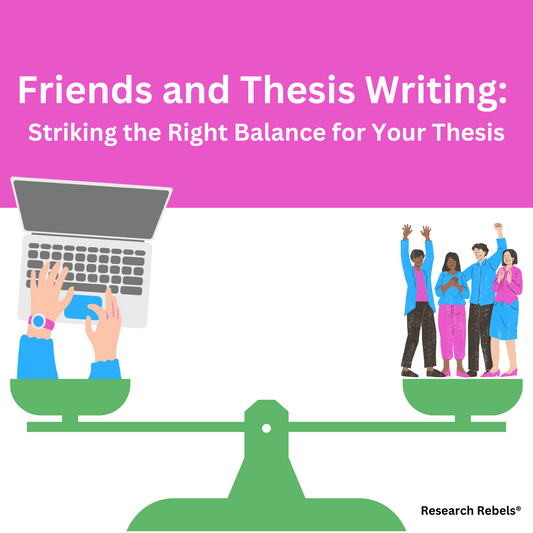
Friends and Thesis Writing: Striking the Right Balance for Your Thesis
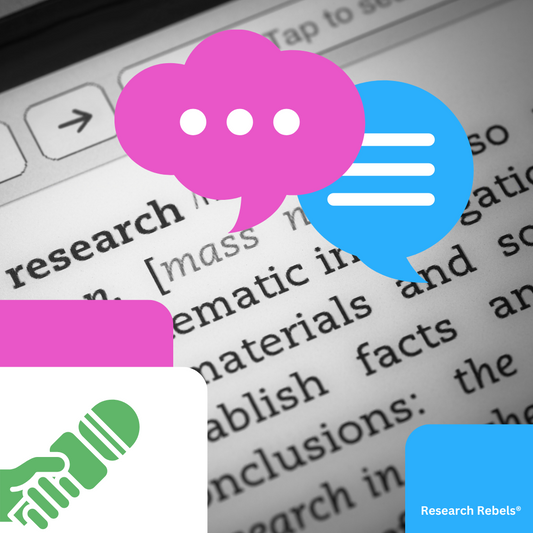
Mastering the Art of Communication: Effective Strategies for Voice Your Research in Interviews
Navigating ethical dilemmas: the morality of conducting interviews.
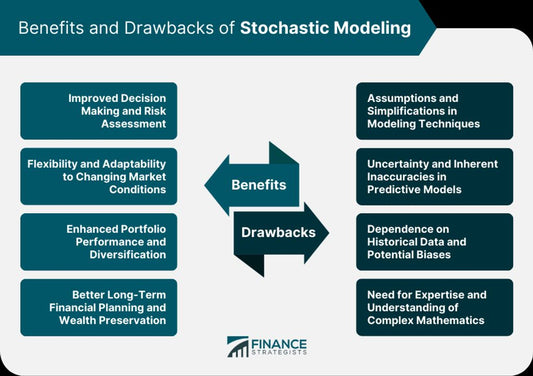
Data Anomalies: Strategies for Analyzing and Interpreting Outlier Data
Crafting the perfect thesis acknowledgement: tips and examples.

Crafting the perfect thesis acknowledgement is a respectful and important part of completing your academic thesis. It provides an opportunity to express gratitude to those who have supported you throughout your research journey. This article aims to guide you through the essential elements of thesis acknowledgements and offer practical examples to help you write a sincere and structured acknowledgement section.
Key Takeaways
- Understanding the purpose of acknowledgements in a thesis is crucial; they recognize the support and contributions of individuals and organizations.
- A well-structured acknowledgement should be genuine, concise, and specific, mentioning each contributor by name and the nature of their assistance.
- Providing examples from various categories such as mentors, family, classmates, and funding support can serve as a template for crafting personalized acknowledgements.
Essential Elements of Thesis Acknowledgements
Understanding the purpose.
The acknowledgement section of your thesis is not merely a formality; it is a professional tribute to the individuals and entities that have supported your academic journey . It serves as a genuine expression of gratitude , reflecting the assistance and encouragement you've received. When crafting this section, consider the purpose of each acknowledgment, ensuring that your thanks are directed appropriately and thoughtfully.
To effectively recognize the contributions of others, you may want to:
- Identify key individuals such as advisors, mentors, and family who have provided substantial support.
- Consider the roles of classmates, research participants, and institutional entities in your work.
- Acknowledge any financial support or technical assistance that was crucial to your research.
Remember, the acknowledgements section is yours to personalize . While there are formalities to observe, the essence lies in providing a sincere and specific account of the support you've received. This is your opportunity to convey appreciation in a meaningful way, setting the tone for the professional and academic relationships you've built during your thesis endeavor.
Structuring Your Acknowledgement
When you begin to structure your acknowledgement, start with a courteous introduction, expressing your sincere gratitude. Identify each contributor by name , and succinctly state how they supported your thesis journey. It's important to maintain a balance between brevity and meaningfulness, ensuring that each acknowledgment is both concise and heartfelt.
Consider the following structure for your acknowledgement:
- Formal address or opening
- Thanks to academic advisors and faculty
- Acknowledgement of funding sources
- Gratitude towards research participants
- Appreciation for family and friends
- Mention of technical and editorial assistance
- Closing remarks
Remember to review the Thesis / Dissertation Formatting Manual (2024) for specific guidelines on citing previously published material and obtaining necessary permissions. The structure of your acknowledgement should reflect the unique contributions to your work, as outlined in the ' Acknowledgement for Thesis | Definition & Sample - BachelorPrint'. Lastly, ensure that your acknowledgement aligns with the general recommendations provided in '4. Writing up your Research: Thesis Formatting (MS Word)', which includes a title page, abstract, and table of contents.
Providing Genuine Thanks
In crafting your thesis acknowledgement, the essence of genuine gratitude cannot be overstated. Express your thanks in a personal and meaningful way , ensuring that each contributor feels valued for their unique support . Reflect on the specific ways individuals or organizations have aided your journey, whether through intellectual guidance, emotional support, or logistical assistance.
- Begin with a heartfelt opening that sets the tone of gratitude.
- Mention each contributor by name, highlighting their specific input.
- Conclude with a warm closing that encapsulates your overall appreciation.
Remember, an acknowledgement is more than a mere formality; it's a reflection of your academic integrity and personal character. By being sincere and specific , you honor the collective effort that has shaped your scholarly work.
Reviewing and Finalizing Your Acknowledgement
Once you have expressed your gratitude and acknowledged all the significant contributors to your thesis, it's crucial to review and finalize your acknowledgement. Ensure that your acknowledgement reflects sincerity and professionalism by meticulously checking for any errors or omissions. Here are some steps to consider:
- Reread your acknowledgement to verify that all names are correctly spelled and titles are accurate.
- Reflect on the contributions of each individual or entity, making sure you haven't missed anyone who played a pivotal role in your thesis journey .
- Seek feedback from peers or mentors to gain an outside perspective on the tone and content of your acknowledgement.
- Revise your acknowledgement for clarity, conciseness, and flow, ensuring it reads well and conveys your genuine appreciation.
Remember, the acknowledgement is not just a courtesy, but a meaningful part of your thesis that showcases your professional relationships and gratitude. Before you consider this section complete, take a moment to restate the significance of each contribution, mirroring the care you've invested in your research.
Practical Examples of Thesis Acknowledgements
Acknowledgement for course instructor.
When crafting your thesis acknowledgement, it's essential to express gratitude to those who have played a pivotal role in your academic journey , including your course instructor. Begin with a heartfelt thank you , acknowledging the specific contributions of your instructor. For instance, you might appreciate their insightful lectures , constructive feedback, or the encouragement they provided that spurred your intellectual growth.
Remember to keep your language genuine and concise . A bulleted list can help you structure your thanks effectively:
- Thank your instructor for their dedication to your learning.
- Mention the ways they have enriched your understanding of the subject.
- Acknowledge any personal encouragement or academic advice they have offered.
By following these steps, you ensure that your acknowledgement resonates with sincerity and adequately reflects the importance of your instructor's support.
Acknowledgement for the Mentor
The mentorship you receive during your thesis journey is pivotal to your academic and personal growth. Your mentor's expertise and guidance are the bedrock of your research success. It is essential to acknowledge their contribution with gratitude and respect. Here are some points you might consider including in your acknowledgement for your mentor:
- Expressing appreciation for their insightful feedback and continuous support.
- Recognizing the mentor's role in shaping your academic path and research skills.
- Mentioning specific instances where their guidance was particularly influential.
- Acknowledging the time and effort they invested in your success.
Remember, a heartfelt and personalized acknowledgement will always resonate more than a generic thank you. Take the time to reflect on the unique aspects of your mentorship experience when crafting this section of your thesis.
Acknowledgement for Family Support
When it comes to acknowledging family support in your thesis, it's essential to convey your gratitude in a manner that reflects the personal and emotional support you've received. Your family's unwavering belief in your academic journey deserves a special mention. They've provided a foundation of encouragement and understanding, often without the expectation of anything in return.
Expressing thanks to your family can be structured in a simple list to ensure each member's contribution is recognized:
- To my parents, for their wisdom and sacrifices.
- To my siblings, for their companionship and humor during stressful times.
- To my partner, for patience and love that gave me strength.
Remember, a heartfelt acknowledgment resonates more than a mere listing of names. It's about capturing the essence of their support, which has been as crucial as any academic guidance. As one source puts it, special thanks are due to family for their patience and understanding during the long hours spent in academic pursuit. In finalizing this section, review it to ensure it genuinely reflects your appreciation and the unique role your family has played in your academic success.
Acknowledgement for Classmates
Your journey through the rigorous academic challenge of thesis writing is often shared with a group of individuals who are in the same boat - your classmates. Their camaraderie and mutual support play a pivotal role in your success . It is essential to acknowledge their contribution, as they provide not just academic support, but also a sense of community during this intense period.
Collaborative efforts with classmates can take various forms, from group study sessions to peer reviews of your work. Here are some ways to express gratitude to your classmates in your thesis acknowledgement:
- Thank them for specific instances of support, such as providing feedback on a draft or sharing resources.
- Acknowledge the collective spirit that helped you stay motivated and focused.
- Mention any classmate who went above and beyond to assist you in your research or writing process.
Remember, a heartfelt acknowledgement can strengthen your bonds and show appreciation for the shared academic journey.
Acknowledgement for Research Participants
When acknowledging research participants , it's essential to express your sincere appreciation for their time and insights. These individuals have played a pivotal role in the advancement of your study, offering valuable data that has likely shaped the outcome of your research. Their willingness to share personal experiences and information is the cornerstone of your project's success.
Begin by thanking them collectively, and if appropriate, mention any groups or communities specifically. It's important to respect the privacy and confidentiality agreements made with participants, so avoid disclosing sensitive information. Here's a simple structure you can follow:
- Express gratitude for their participation
- Highlight the importance of their contributions
- Acknowledge the impact of their data on your research
- Reiterate your commitment to confidentiality and ethical standards
Remember, without their involvement, the richness of your research would be diminished. As you draft this section, reflect on the tools and resources that aided you in defining your thesis purpose and maintaining research focus , such as worksheets, templates, and action plans. These tools not only facilitate organization but also underscore the significance of each participant's contribution.
Acknowledgement for Funding Support
When acknowledging funding support , it's crucial to express gratitude in a manner that reflects the significance of the financial contribution to your research. Your benefactors have provided more than just funds; they have invested in your academic potential.
- Begin by naming the specific funding bodies , grants, or scholarships that supported your work. For example, "This research was supported by the XYZ Scholarship Fund."
- Mention how the funding has directly impacted your research, such as enabling fieldwork, purchasing equipment, or allowing for full-time dedication to the study.
- If applicable, outline the broader impact of the funding, such as contributing to the advancement of knowledge in your field or supporting future scholars.
Remember to review the requirements or guidelines provided by your funding bodies as some may have specific stipulations on how their support should be acknowledged. A sincere and thoughtful acknowledgement not only shows your appreciation but also demonstrates your professionalism and attention to detail.
Acknowledgement for Technical Assistance
When acknowledging technical assistance in your thesis, it's important to highlight the specific contributions made by individuals or groups that provided technical support . Your acknowledgement should reflect the significance of their expertise to your research. For instance:
- Mr. Smith's proficiency with analytical tools greatly facilitated the research process.
- The guidance in navigating complex data sets was crucial.
- The dedication to ensuring the accuracy and rigor of findings was invaluable.
Expressing gratitude for technical assistance not only shows your appreciation but also underscores the collaborative nature of academic research. Remember to be specific about the type of assistance received and the impact it had on your work. This can range from data analysis to specialized equipment handling or software troubleshooting.
Incorporate these tips for effective time management to overcome procrastination and make progress on your thesis. Break tasks into smaller chunks, eliminate distractions, set goals, take breaks, and seek support when you're dealing with technical challenges. This proactive approach will help you maintain momentum and express genuine thanks in your acknowledgement.
Acknowledgement for Institutional Support
When it comes to acknowledging institutional support in your thesis, it's important to recognize the broader infrastructure that has facilitated your research. Your institution is not just a backdrop for your academic journey; it is a pivotal enabler of your scholarly pursuits. Expressing gratitude towards your university or college demonstrates an awareness of the collective effort that underpins individual success.
Begin by thanking the institution for specific resources or opportunities provided, such as access to libraries, laboratories, or funding programs. For instance:
- ABC University for the use of their state-of-the-art laboratories
- XYZ College for granting special research fellowships
- The 123 Institute for providing critical data sets
Remember to mention any significant contributions that have directly impacted the success of your research. This acknowledgment seeks to recognize the invaluable support provided by the institution, which often includes administrative staff, facilities management, and academic departments . It's a way to show gratitude and appreciation for the collective support that has been instrumental in reaching this pivotal point in your academic career.
Acknowledgement for Editorial Assistance
When it comes to editorial assistance, your acknowledgement should reflect the meticulous effort and valuable contributions of those who helped refine your thesis. Express your gratitude for their attention to detail and the significant improvement they brought to the quality of your work. Editorial experts not only enhance the clarity and coherence of your manuscript but also ensure adherence to the highest standards of academic integrity .
Remember to mention specific instances where their insights were particularly beneficial. For example:
- Their suggestions on rephrasing complex sentences
- Corrections made to ensure accurate referencing
- Guidance on maintaining a consistent tone throughout the document
By acknowledging the editorial support you received, you highlight the collaborative nature of academic work and the importance of clear communication. It's a gesture that underscores the value of their role in the journey of your scholarly publication .
Acknowledgement of Industry Collaboration
When acknowledging industry collaboration in your thesis, it's important to highlight the practical impact of such partnerships. Your innovative ideas and constructive feedback have enhanced the overall quality of our work. Thank you for being an invaluable partner in this endeavor. The collaboration with industry experts not only brings a wealth of knowledge but also ensures that your research remains relevant and applicable in a real-world context .
In expressing gratitude, consider the following points:
- The specific contributions and resources provided by the industry partner.
- The ways in which the collaboration has shaped your research.
- Any challenges that were overcome through the partnership.
Remember, a well-crafted acknowledgement can serve as a testament to the symbiotic relationship between academia and industry. It's a gesture of appreciation that underscores the mutual benefits of such collaborations. Ensure that your thanks are not just a formality, but a genuine recognition of the value added to your research.
Embarking on the journey of thesis writing can be daunting, but you don't have to do it alone. Our comprehensive Thesis Action Plan is designed to guide you through every step, ensuring a stress-free and successful completion. From practical examples of thesis acknowledgements to step-by-step instructions, we've got you covered. Don't let anxiety and sleepless nights take over. Visit our website now to claim your special offer and start your path to thesis mastery with confidence!
In crafting the perfect thesis acknowledgement, we must remember that it is more than a mere formality; it is a heartfelt expression of gratitude towards those who have contributed to our academic journey. The acknowledgement section is a unique space within our thesis to extend our sincerest thanks to mentors, family, peers, and institutions that have provided support, guidance, and resources. By following the tips and examples provided in this article, students can ensure that their acknowledgements are not only appropriately structured and sincere but also reflective of the collaborative spirit inherent in academic pursuits. As we conclude, let us acknowledge that the success of a thesis is not a solo achievement but the culmination of a collective effort, and it is this spirit of collaboration and support that the acknowledgement section should encapsulate.
Frequently Asked Questions
What is the purpose of a thesis acknowledgement.
The purpose of a thesis acknowledgement is to express gratitude to individuals, groups, or institutions that have contributed to the completion of your thesis. It's an opportunity to thank those who provided support, guidance, resources, or inspiration throughout your research and writing process.
How should I structure my thesis acknowledgement?
Your thesis acknowledgement should be structured with a polite opening, followed by specific thanks to each contributor. Start with those most closely associated with your research, such as advisors and committee members, then acknowledge other supporters such as peers, family, and funding bodies. Keep it concise and sincere.
Can I include personal acknowledgements in my thesis?
Yes, it is common to include personal acknowledgements in your thesis. You can express gratitude to family members, friends, or anyone else who provided personal support or encouragement. However, maintain a professional tone and keep the focus on how they contributed to your thesis journey.

- Rebels Blog
- Blog Articles
- Terms and Conditions
- Payment and Shipping Terms
- Privacy Policy
- Return Policy
© 2024 Research Rebels, All rights reserved.
Your cart is currently empty.

- Acknowledgements for PhD Thesis and Dissertations – Explained
- Doing a PhD
The Purpose of Acknowledgements
The acknowledgement section of a thesis or dissertation is where you recognise and thank those who supported you during your PhD. This can be but is not limited to individuals, institutions or organisations.
Although your acknowledgements will not be used to evaluate your work, it is still an important section of your thesis. This is because it can have a positive (or negative for that matter) influence the perception of your reader before they even reach the main body of your work.
Who Should I Acknowledge?
Acknowledgements for a PhD thesis will typically fall into one of two categories – professional or personal.
Within these categories, who you thank will ultimately be your decision. However, it’s imperative that you pay special attention to the ‘professional’ group. This is because not thanking someone who has played an important role in your studies, whether it be intentional or accidental, will more often than not be seen as a dismissal of their efforts. Not only would this be unfair if they genuinely helped you, but from a certain political aspect, it could also jeopardise any opportunities for future collaborations .
Professional Acknowledgements
This may include, but is not limited to:
- Funding bodies/sponsorship providers
- Supervisors
- Research group and lab assistants
- Research participants
- Proofreaders
Personal Acknowledgements
- Key family members and friends
- Individuals who inspired you or directly influenced your academic journey
- Anyone else who has provided personal support that you would like to mention
It should be noted that certain universities have policies which state only those who have directly supported your work, such as supervisors and professors, should be included in your acknowledgements. Therefore, we strongly recommend that you read your university guidelines before writing this section of your thesis.
How to Write Acknowledgements for PhD Thesis
When producing this section, your writing style can be more informal compared to the rest of your thesis. This includes writing in first person and using more emotive language. Although in most cases you will have complete freedom in how you write this section of your thesis, it is still highly advisable to keep it professional. As mentioned earlier, this is largely because it will be one of the first things your assessors will read, and so it will help set the tone for the rest of your work.
In terms of its structure, acknowledgements are expected to be ordered in a manner that first recognises the most formal support before moving onto the less formal support. In most cases, this follows the same order that we have outlined in the ‘Who Should I Thank’ section.
When thanking professionals, always write out their full name and provide their title. This is because although you may be on a first-name basis with them, those who read your thesis will not. By providing full names and titles, not only do you help ensure clarity, but it could also indirectly contribute to the credibility of your thesis should the individual you’re thanking be well known within your field.
If you intend to include a list of people from one institution or organisation, it is best to list their names in alphabetical order. The exception to this is when a particular individual has been of significant assistance; here, it would be advisable to list them.
How Long Should My Acknowledgements Be?
Acknowledgements vary considerably in length. Some are a single paragraph whilst some continue for up to three pages. The length of your acknowledgement page will mostly depend on the number of individuals you want to recognise.
As a general rule, try to keep your acknowledgements section to a single page. Although there are no word limits, creating a lengthy acknowledgements section dilutes the gratitude you’re trying to express, especially to those who have supported you the most.
Where Should My Acknowledgements Go?
In the vast majority of cases, your acknowledgements should appear directly after your abstract and before your table of contents.
However, we highly advise you to check your university guidelines as a few universities set out their own specific order which they will expect you to follow.
Phrases to Help You Get Started

We appreciate how difficult it can be to truly show how grateful you are to those who have supported you over the years, especially in words.
To help you get started, we’ve provided you with a few examples of sentences that you can complete or draw ideas from.
- I am deeply grateful to XXX…
- I would like to express my sincere gratitude to XXX…
- I would like to offer my special thanks to XXX…
- I would like to extend my sincere thanks to XXX…
- …for their assistance at every stage of the research project.
- …for their insightful comments and suggestions.
- …for their contribution to XXX.
- …for their unwavering support and belief in me.
Thesis Acknowledgement Examples
Below are three PhD thesis acknowledgment samples from which you can draw inspiration. It should be noted that the following have been extracted from theses which are freely available in the public domain. Irrespective of this, references to any individual, department or university have been removed for the sake of privacy.
First and foremost I am extremely grateful to my supervisors, Prof. XXX and Dr. XXX for their invaluable advice, continuous support, and patience during my PhD study. Their immense knowledge and plentiful experience have encouraged me in all the time of my academic research and daily life. I would also like to thank Dr. XXX and Dr. XXX for their technical support on my study. I would like to thank all the members in the XXX. It is their kind help and support that have made my study and life in the UK a wonderful time. Finally, I would like to express my gratitude to my parents, my wife and my children. Without their tremendous understanding and encouragement in the past few years, it would be impossible for me to complete my study.
I would like to thank my supervisors Dr. XXX and Dr. XXX for all their help and advice with this PhD. I would also like to thank my sisters, whom without this would have not been possible. I also appreciate all the support I received from the rest of my family. Lastly, I would like to thank the XXX for the studentship that allowed me to conduct this thesis.
I would like to thank my esteemed supervisor – Dr. XXX for his invaluable supervision, support and tutelage during the course of my PhD degree. My gratitude extends to the Faculty of XXX for the funding opportunity to undertake my studies at the Department of XXX, University of XXX. Additionally, I would like to express gratitude to Dr. XXX for her treasured support which was really influential in shaping my experiment methods and critiquing my results. I also thank Dr. XXX, Dr. XXX, Dr. XXX for their mentorship. I would like to thank my friends, lab mates, colleagues and research team – XXX, XXX, XXX, XXX for a cherished time spent together in the lab, and in social settings. My appreciation also goes out to my family and friends for their encouragement and support all through my studies.
Browse PhDs Now
Join thousands of students.
Join thousands of other students and stay up to date with the latest PhD programmes, funding opportunities and advice.
How to write a unique thesis acknowledgement (+ FAQs)
Crafting a thesis acknowledgement is typically one of the final steps in completing a thesis. This post aims to assist you in gaining insights and guidance by addressing common questions related to thesis acknowledgements. By doing so, it enables you to create a distinct and meaningful acknowledgment section that reflects your gratitude and appreciation.
What is a thesis acknowledgement?
Do i need a thesis acknowledgement, who should i thank in my thesis acknowledgment, how can i make my thesis acknowledgement uniquely personal, how formal should a thesis acknowledgement be, to what extent should i express personal sentiments in my thesis acknowledgement, how should i structure my thesis acknowledgement, how long should a thesis acknowledgement be, where is the thesis acknowledgement located, where can i find examples of thesis acknowledgements.
A thesis acknowledgement is a special section commonly included at the beginning of a thesis or dissertation. In this section, the author of the thesis expresses gratitude and appreciation to individuals or groups who have contributed to the successful completion of their academic work. It is a way for the author to acknowledge the support, guidance, and assistance they received during the research and writing process.
While a thesis acknowledgement is typically not a mandatory requirement, omitting it might not be seen positively. Writing a thesis almost always involves some form of assistance or support, whether from a supervisor, family, or friends.
Acknowledging these contributions is not only considerate but also showcases your gratitude and reflects well on your character. Including a thesis acknowledgement demonstrates your appreciation for the help you received throughout your academic journey, underscoring the collaborative nature of research and academic pursuits.
- Yes, it is strongly recommended to include a thesis acknowledgement.
The thesis acknowledgement offers flexibility, but thanking your thesis supervisor/s is an absolute must—non-negotiable. It would be highly unusual to omit their appreciation.
Additionally, it’s customary to thank those who contributed data, such as interviewees or survey participants. While listing every individual may be impractical, acknowledging their assistance shows respect and gratitude. If someone went above and beyond to help you establish contacts for your case study, it’s worth mentioning.
Apart from these essentials, you have the freedom to thank anyone you desire. Common mentions include parents, partners, friends, peers, and colleagues. Some may even extend gratitude to pets or coffee! Injecting humor is acceptable, but maintaining a certain level of formality is advised, as explained in the subsequent section.
- Acknowledging your thesis supervisor/s is a non-negotiable requirement.
- Show appreciation to those who contributed data or support, like interviewees or survey participants.
- Feel free to thank parents, partners, friends, and colleagues.
How to deal with a thesis supervisor with whom I had a challenging relationship in my thesis acknowledgement?
Regrettably, not everyone shares a positive relationship with their thesis supervisor. Nevertheless, it is important to acknowledge them in your thesis.
When doing so, maintain a concise approach while ensuring a respectful and diplomatic tone, refraining from any negative aspects or conflicts. Instead, emphasize the professional aspects of their contribution, such as supporting the development of the theoretical framework or providing valuable critical feedback that enhanced the quality of your work.
- Acknowledge your thesis supervisor, even if your relationship was challenging.
- Maintain a concise and respectful tone.
- Focus on the supervisor’s professional contributions.
Once you have decided whom to thank in your thesis acknowledgement, consider going beyond generic expressions of gratitude. Making your acknowledgements more personal and specific can make them truly special. Instead of simply thanking someone for their guidance and support, include examples that highlight the unique contributions of those individuals.
For instance, if you are thanking your fellow thesis writers, you can say something like: “Long study sessions at the library with John and Sabine made thesis writing a joyful experience.” This demonstrates the specific way they contributed to your journey.
Similarly, if you had engaging conversations during walks in the park with someone, you can mention: “Our thoughtful discussions while strolling through the park were a crucial aspect of getting excited about my thesis topic.”
By providing concrete examples, your acknowledgements become more heartfelt and memorable, showing the genuine impact of each person you thank.
- If possible, make thesis acknowledgements personal and specific.
- Include examples of how each person contributed uniquely.
- Highlight specific interactions or experiences that made a difference in your thesis journey.
While there are no strict rules for writing a thesis acknowledgement, it’s essential to consider its significance as one of the first things readers encounter in your thesis. Therefore, maintaining a certain level of formality is advised.
Avoid including details of personal experiences like drinking excesses with friends or lavish parties to cope with thesis stress. Such content could create a negative impression and should be avoided.
Remember that your thesis is an academic work, and the acknowledgement should not detract from its academic merit. Focus on expressing gratitude to those who contributed to your academic journey in a professional and appropriate manner.
- Keep a level of formality, as your acknowledgement section is one of the first things readers see.
People have different boundaries in terms of how open they are, and you should do what you feel comfortable with. But don’t forget that your thesis will likely be a document open to the public. So make sure that you will be comfortable with the information out there, also 2, 5 or ten years from now.
That said, the thesis acknowledgement is there to showcase your human side and your gratitude for your loved ones. So don’t hold back when you really want to thank someone deep from your heart.
And of course make sure that the information you reveal about the people you thank, they are also comfortable with it. You should not, for instance, describe your messy breakup with a person and even worse naming the person by name. Instead, you can write something more neutral in a way that people who know you well still know what you mean. For instance, you could thank your friends for always being there for you during challenging times, which you are grateful for.
- Remember that your thesis is public, so ensure you’ll be okay with the information long-term.
- Thank people genuinely but avoid sharing sensitive or personal details about others.
When writing a thesis acknowledgement, there are several acceptable ways to structure it, each serving its purpose. Three commonly used approaches stand out.
The first method is the chronological structure, typically employed in longer theses like PhD dissertations. In a chronological acknowledgement, you express gratitude to those who supported you throughout your entire thesis journey . For instance, you can start by thanking your supervisor for their guidance from the very beginning, then acknowledge the organizers of the PhD summer school you attended in year two, followed by appreciation for your friends who encouraged you during the challenging writing phase in year three, and so on.
The second approach involves structuring the acknowledgement based on the nature of relationships, ranging from formal to personal. Here, you begin by expressing thanks to your formal supervisors and professors who played a significant role in shaping your research, then move on to more informal yet professional mentors. Subsequently, you extend your gratitude to friends, family, and, if applicable, your partner or spouse.
The third common method is essentially the reverse of the second one, starting with personal relationships and ending with formal ones. In this arrangement, you begin by thanking your close friends and family members for their unwavering support, then move on to acknowledge professional mentors who contributed to your academic growth, and finally conclude the acknowledgement with appreciation for your thesis supervisor.
- Thesis acknowledgements can be structured chronologically.
- Thesis acknowledgements can be structured from formal to personal.
- Thesis acknowledgements can be structured from personal to formal.
The general guideline is that the length of the thesis acknowledgement can vary depending on the length of the thesis itself. However, this doesn’t imply that it must be excessively long.
For bachelor or master theses, the average length typically ranges from 100 to 250 words, equivalent to about half a page.
PhD thesis acknowledgements, on the other hand, tend to be longer, given the extended duration of PhD research. The average length for a PhD thesis acknowledgement ranges from 250 to 1000 words, or approximately half a page to 2 pages.
- Bachelor’s theses: usually 100-250 words
- Master’s theses: usually 100-350 words
- PhD theses: usually 250 – 1000 words
The thesis acknowledgement is typically positioned right at the beginning of the thesis, following the title page and preceding the table of contents. This placement ensures that it remains distinct from the academic content of the thesis.
When formatting your document, it’s advisable to insert blank pages to maintain a proper layout in the printed version, especially when double-paged printing is used. To achieve this layout, page 1 is reserved for the title page, page 2 is often left empty, and page 3 contains the thesis acknowledgement. Additionally, page four is frequently left blank as well. This arrangement enhances the reading experience of the printed version and provides a more polished appearance to the document.
- The thesis acknowledgement is typically placed at the beginning of the thesis, after the title page and before the table of contents.
- Leaving empty pages, such as page 2 and often page 4, helps in maintaining a visually pleasing layout, when double-sided printing is used.

Many universities maintain thesis repositories, providing students access to previous years’ theses. This serves a twofold purpose: firstly, it helps students gain clarity on the university’s expectations, preferred style, and required length for a thesis. Secondly, it offers a valuable opportunity to explore a diverse array of thesis acknowledgements, serving as a source of inspiration for crafting one’s own acknowledgment section.
In addition to utilizing the university’s repository, I have created five examples of PhD thesis acknowledgements that you can review for further guidance and ideas.
- Check your university’s thesis repository.
- Find five PhD thesis acknowledgement examples here .
Master Academia
Get new content delivered directly to your inbox.
Subscribe and receive Master Academia's quarterly newsletter.
How to thrive in academia as an extrovert
How to end a professional email in a university setting, related articles.

5 inspiring PhD thesis acknowledgement examples

Better thesis writing with the Pomodoro® technique

PhD thesis types: Monograph and collection of articles

How to write a literature review introduction (+ examples)
Overview: Acknowledgements Template
This template provides a basic structure for the acknowledgements section of a typical dissertation, thesis or research project.
In line with academic best practice , the acknowledgements are structured from most formal (supervisor, committee, etc.) to least formal (family and friends). Each section has easy to use placeholders that allow you to create your acknowledgements section in just a few minutes.
The cleanly formatted Google Doc can be downloaded as a fully editable MS Word Document (DOCX format), so you can use it as-is or convert it to LaTeX.
PS – if you’d like a high-level template for the entire thesis, you can we’ve got that too .
Dissertation & Thesis Conclusion FAQ
What format is the template (doc, pdf, ppt, etc.).
The acknowledgements section template is provided as a Google Doc. You can download it in MS Word format or make a copy to your Google Drive. You’re also welcome to convert it to whatever format works best for you, such as LaTeX or PDF.
Is this template for an undergrad, Master or PhD-level thesis?
This template can be used for a dissertation, thesis or research project at any level of study. As always, be sure to check your university’s requirements and norms in terms of document structure.
What types of dissertations/theses can this be used for?
The acknowledgements section template template follows the standard format for academic research projects, which means it will be suitable for the majority of dissertations, theses and research projects (especially those within the sciences).
Keep in mind that the exact requirements for the conclusion chapter/section will vary between universities and degree programs. So, be sure to double-check your university’s requirements before you finalize your structure.
How long should the acknowledgement section be?
Typically, the acknowledgements section comprises a few paragraphs at most. Keep it short and sweet.
Can I share this template with my friends/colleagues?
Yes, you’re welcome to share this template in its original format (no editing allowed). If you want to post about it on your blog or social media, please reference this page as your source.
Do you have templates for the other chapters?
Yes, we do. We are constantly developing our collection of free resources to help students complete their dissertations and theses. You can view all of our template resources here .

How to write acknowledgements in a thesis or dissertation
Navigating the intricate process of writing a thesis or dissertation can be challenging.
One crucial, yet often overlooked part is the thesis acknowledgement. It is also the only bit of my thesis that anyone really reads.
This section allows you to express gratitude to those who contributed to your academic journey. From supervisors and professors to family and friends, the acknowledgement section provides a platform to thank all who played a part in your work.
Whether you’re unsure about how to begin or looking for the best ways to acknowledge your mentors, this blog will provide valuable insights and practical advice to help you create an impactful thesis acknowledgement.
What is your thesis acknowledgement?
A thesis acknowledgement is a section in your thesis where you express gratitude to those who helped and supported you during your research and writing process.

It typically comprises two parts: professional and personal acknowledgements.
- Professional acknowledgements include your supervisor, colleagues, other academics, funding bodies, or institutions that significantly contributed to your work.
- Personal acknowledgements encompass your family and friends who provided emotional support or helped with editing and proofreading.
The acknowledgements section is usually more informal than the rest of your thesis , and it’s acceptable to write in the first person. It’s typically placed at the beginning of your thesis, either before the abstract or the table of contents.
Although the length may vary, it usually doesn’t exceed one page. It’s crucial to plan ahead, listing everyone you wish to thank and consider their specific contribution to your work.
Who to thank in your acknowledgements
In your acknowledgements, you should first thank the members of academia who contributed to your research, including:
- funding bodies,
- supervisors,
- professors,
- proofreaders,
- and research participants.
Mention them using their full names and titles.
If an authoritative figure in your field provided feedback, their acknowledgement adds weight to your research.
Despite the circumstances, a brief thank you to your supervisor is necessary.
Personal acknowledgements can include friends, family members, or even pets who provided inspiration or support during the writing process. Always refer to your university’s guidelines on acknowledgements.
Creating an acknowledgement can be slightly subjective, as the order and individuals to be thanked can vary greatly depending on the circumstances of the work and the author’s preferences.
However, generally, this example follows a common structure:
The order can be customized based on the importance of the roles these individuals played in the author’s journey.
Some may prefer to thank family or significant others first, while others might start with professional relationships such as advisors or collaborators.
It’s also crucial to keep in mind that the way of expressing gratitude can differ significantly between cultures and individuals.
How Long Should My Acknowledgements Be?
The length of an acknowledgement section varies depending on the individual and the nature of the project.
Some people prefer to keep their acknowledgements brief and only thank those individuals who made significant contributions to their work.
Others may choose to include a more extensive list of people, such as mentors, colleagues, and friends, who provided support and encouragement throughout the process.
In general, it is recommended to keep your acknowledgements concise and focused on those who had a direct impact on the project
. Including a heartfelt thank you to these individuals is a meaningful way to show appreciation for their efforts.
However, it is important not to get carried away and turn the acknowledgement page into a long list of names. Remember that the focus should be on quality rather than quantity, as the acknowledgement section should not overshadow the main content of the project.
Where Should My Acknowledgements Go?
The placement of your acknowledgements can vary, but it’s typically located in the first part of your thesis.
Mine is right after the abstract and before the introduction of my PhD thesis.
You can place it right before your dissertation abstract or before the table of contents. However, the exact positioning may depend on the guidelines and requirements provided by your university.
Always ensure to check your university’s formatting requirements to be sure you’ve chosen the correct location for your acknowledgements section.
Thesis acknowledgement examples
Here is my PhD thesis acknowledgement.

Here are some sentence starters that you can use for inspiration:
1. “This thesis acknowledgement is a tribute to all the people who made my academic journey worthwhile.” 2. “I would like to thank my supervisor, whose unwavering support has been instrumental in the completion of this thesis.” 3. “In this acknowledgement section, I extend my deepest gratitude to all who have walked with me on this challenging but fulfilling journey.” 4. “Firstly, I would like to express my sincere thanks to the academic staff who provided their invaluable expertise and guidance.” 5. “My thesis would not have been possible without the endless help and support from my colleagues.” 6. “Special thanks go to my family, whose constant encouragement fueled my perseverance during the completion of this dissertation.” 7. “In the professional acknowledgements, I would like to acknowledge the significant contributions made by my research participants.” 8. “I would also like to thank the funding bodies, whose financial support made this research possible.” 9. “Through this acknowledgment, I express my heartfelt gratitude to my friends who have been my pillars of strength.” 10. “The completion of this thesis or dissertation is the culmination of efforts from various individuals whom I would like to express my sincere appreciation.” 11. “This thesis acknowledgement section is an opportunity to give thanks to those who made this journey less daunting.” 12. “I would like to express my gratitude to my editor, whose meticulous proofreading greatly improved my thesis.” 13. “Without their dedication, this thesis would not have been possible.” 14. “I express my sincere gratitude to all those whose names appear in this acknowledgement for their invaluable input.” 15. “In this acknowledgement for my thesis, I extend my appreciation to all those who have been part of this journey.”
Top tips to write acknowledgements
- Plan Ahead : Make a list of the people you want to acknowledge and their specific contributions to your work.
- Follow University Guidelines : Check your university’s formatting and content guidelines to ensure your acknowledgements adhere to them.
- Use First Person : Unlike the rest of your thesis, the acknowledgements can be written in the first person.
- Keep it Brief : The acknowledgement section should generally not exceed one page. Be concise and precise in expressing your gratitude.
- Maintain Professional-Personal Order : Start with professional acknowledgements (e.g., supervisors, colleagues, funders) before moving on to personal ones (e.g., friends, family).
- Be Specific : Highlight the specific contributions each person or organization made to your thesis.
- Use Full Names and Titles : When acknowledging academic contributors, use their full names and appropriate titles.
- Use Informal Language : Acknowledgements can be written in a more informal style, but avoid colloquial language.
- Proofread : Ensure your acknowledgements are free of spelling and grammar errors.
- Be Genuine and Sincere : The acknowledgements section should sincerely reflect your gratitude to the people who helped you in your academic journey.
Wrapping up – writing your acknowledgements section
As we reach the conclusion of this informative journey into the art of writing acknowledgements for a thesis or dissertation, it’s clear that this often-overlooked section carries significant emotional and professional weight.
A dissertation acknowledgements page is more than just a list of names; it’s a chance to express genuine gratitude and give due credit to all who have contributed to your academic journey.
Remember, writing this section of your thesis isn’t an obligatory chore but a genuine opportunity to thank those who supported you.
From the tireless members of your thesis committee to the friends and family who offered emotional support, it’s a platform to acknowledge all the people who helped.
From mentors who provided expert guidance, colleagues who offered invaluable insights, to the institutions that funded your research – everyone deserves a heartfelt note of thanks.
Sample acknowledgements in a thesis often include both professional acknowledgements first, followed by personal ones, ensuring that all contributors are recognized appropriately. Always remember to use full names and titles for professional acknowledgements, and express your gratitude sincerely.
The acknowledgement page isn’t a place for long tales, jokes or anecdotes; instead, keep your acknowledgements concise, specific, and heartfelt.
As shown in the thesis acknowledgement examples, you should reflect on the people and organizations that significantly contributed to your research or writing, whether in a substantial technical manner or through support and guidance throughout the process.
Studentship that allowed you to pursue your research, faculty who guided your studies, even friends who provided distractions when they were most needed – all these contributors deserve your thanks. Remember, it’s okay to use their first names for those who’ve been part of your personal journey, but for professional acknowledgments, full names and titles are recommended.
As a PhD student, your acknowledgements should reflect your journey – the struggles, the triumphs, and most importantly, the people who have helped you along the way. Whether you include a list of names in alphabetical order, or you decide to group people or organizations, remember to be genuine, concise, and respectful.
Whether it’s a thesis dedication to a mentor, expressing gratitude to your parents, thanking your friends for their love and encouragement, or even including certain political aspects that influenced your research, the acknowledgments section is yours to personalize.
Writing a thesis or dissertation is a monumental task, and the people who support you through it are worth acknowledging. Keep this guide in mind when you write your thesis acknowledgements, and don’t forget to thank those who’ve been there for you – for in the journey of research and writing, no one truly walks alone.
The last sentence may be a heartfelt statement, “I would like to express my gratitude to all those who walked with me throughout my research journey – your support was my strength, and this achievement is as much yours as it is mine.”

Dr Andrew Stapleton has a Masters and PhD in Chemistry from the UK and Australia. He has many years of research experience and has worked as a Postdoctoral Fellow and Associate at a number of Universities. Although having secured funding for his own research, he left academia to help others with his YouTube channel all about the inner workings of academia and how to make it work for you.
Thank you for visiting Academia Insider.
We are here to help you navigate Academia as painlessly as possible. We are supported by our readers and by visiting you are helping us earn a small amount through ads and affiliate revenue - Thank you!

2024 © Academia Insider

Acknowledgement Examples
Examples of Acknowledgement for Project, Thesis and Assignments
Acknowledgement For Thesis
Written acknowledgements are a common feature of thesis papers and other academic writing. They are a way of thanking those who have helped you in the research and writing process, and can be a great way to show your gratitude.
If you’re not sure how to write acknowledgements, or are looking for a few examples to get started, this article will help. It contains eight+ examples of acknowledgement for thesis papers, as well as tips on how to write your own. So whether you’re just starting out, or need a little help putting your acknowledgements together, read on!
Acknowledgement Writing Tips For Thesis
Here are a few tips for writing acknowledgements in a thesis or dissertation:
- Start by thanking your advisor or thesis committee for their guidance and support throughout the research process.
- Express gratitude to any professors or other individuals who have provided feedback or assistance with your research.
- Acknowledge any funding sources that have supported your research, such as grants or scholarships.
- Remember to thank anyone else who has provided assistance or support during the research and writing process, such as friends, family, and colleagues.
- Keep the tone of your acknowledgements sincere and heartfelt.
- Keep it short, usually no longer than a page.
- Avoid including any personal or confidential information that shouldn’t be shared in a public document.
- Re-read and proofread the acknowledgement page, it should be free of grammar, syntax and spelling errors as it is a important part of the thesis.
Other Acknowledgement Article:
- How To Write An Acknowledgement For College Project?
- Acknowledgement For Graduation Project
- Acknowledgement For Email
Acknowledgement Examples For Thesis
So, we can conclude that an acknowledgement for a thesis can take many different forms. It can be as simple as a thank you to friends and family who supported the student during the research and writing process, or it can be more formal, such as thanking a funding agency or research institution. Whatever form it takes, an acknowledgement for a thesis should be heartfelt and express the student’s gratitude for the support they received.
Leave a Comment Cancel reply
Save my name, email, and website in this browser for the next time I comment.

Reference management. Clean and simple.
Dissertation acknowledgments [with examples]

What are dissertation acknowledgements?
What to consider when writing your dissertation acknowledgments, who to thank in your dissertation acknowledgments, what (and what not) to write in your dissertation acknowledgments, good examples of dissertation acknowledgments, a final word on writing dissertation acknowledgments: have fun, frequently asked questions about dissertation acknowledgments, related articles.
While you may be the sole author of your dissertation, there are lots of people who help you through the process—from your formal dissertation advisors to the friends who may have cooked meals so that you could finish your last chapter . Dissertation acknowledgments are a chance to thank everyone who had a hand in the completion of your project.
Dissertation acknowledgments are a brief statement of your gratitude to advisors, professors, peers, family, and friends for their help and expertise.
In this guide, we’ll cover:
- the most important things to consider when you’re writing your dissertation acknowledgments
- who to thank in your dissertation acknowledgments
- what (and what not) to write in your dissertation acknowledgments
- short examples of dissertation acknowledgments
Once you’re at the stage where you’re writing your dissertation acknowledgments, you may be tempted to kick back and relax. After all, the hard part of writing the dissertation itself is over and a list of thanks should be simple to churn out.
However, the acknowledgments are an important part of your overall work and are something that most people who read your dissertation, including prospective employers, will look at.
Tip: The best dissertation acknowledgements are concise, sincere, and memorable.
Approach this part of the process, brief as it may be compared to the long haul of writing the dissertation, with the same high level of care and attention to detail. It’s an explicit and permanent statement of who made a real impact on your work and contributed to your academic success.
Plus, the people you thank are often deeply moved by being included—some even go so far as to frame the acknowledgments. Aim to make yours sincere, memorable and something that people will be touched by.
First things first: who should you include in your dissertation acknowledgments? If you’re not sure who to thank, try the brainstorming technique to generate some ideas. Consider these two approaches:
- Make a list of everyone, both professional and personal, who was involved at any point during your work on your dissertation, and then thin down the list from there.
- Make a list of the pivotal aspects of your process and think about who was involved and how they helped.
As you select the people and groups to include in your dissertation acknowledgments, keep in mind that it’s essential to acknowledge your supervisor and anyone else with a visible connection to your work.
It’s an unfortunate reality that not every supervisor goes above and beyond to provide feedback and guidance to the students they are supposed to supervise. However, leaving them out, even if you personally felt disappointed by their involvement or lack thereof, could be seen as a snub.
You should end up with a fairly short list of people to thank. While being mindful of professional etiquette and personal feelings, be choosy about who makes the final cut since your acknowledgments should be limited to no more than a page.
Now that you have your list of people and groups to thank, it’s time to start writing. Before your first pen or keystroke, however, check your university’s guidelines as your institution may have specific rules around what can and cannot be included.
The standard practice is to begin with the formal and then progress to the informal, so the first people to mention would be:
- supervisors
- committee members
- other professional contacts
Use their full names and titles and go into brief detail about how they contributed to your work.
Once those are done, you can move on to the personal thanks, which can include friends, family, even pets. If you are so inclined, it is also considered appropriate to thank God or make mention of spiritual support.
You may also choose to inject a little humor at this point, but don’t get carried away and definitely don’t include sarcasm or critical comments of any kind, including self-critical ones. Remember that the acknowledgments precede your dissertation, so you want to be taken seriously.
A couple more basics that are essential when creating your acknowledgments:
- Position: Acknowledgments should be placed after the title page and before the abstract.
- Perspective: Write from the first-person perspective and speak in your own voice.
A really good way to get a sense of how to write your own dissertation acknowledgments is to read ones written by others. Notice which ones you respond particularly well to and use them as a model upon which to base your own.
Here are some good examples to help you get started:
I couldn’t have reached this goal without the help of many people in my life. I’d like to take this opportunity to thank them for their support.
First, my sincere thanks to my dissertation committee. The value of their guidance cannot be overstated. Dr. Elaine Gooding and Dr. Matthew Hunter provided much wisdom that helped me chart my course. I couldn’t have asked for a better supervisor than Dr. Fiona Moore, whose knowledge and experience guided me every step of the way.
Next, I’d like to thank my partner, Elliott. Your votes of confidence kept me going when my spirits dipped. I couldn’t have done this without you.
Last but not least, I’d like to acknowledge the emotional support provided by my family and friends. We made it to the top of the mountain! I look forward to celebrating with all of you.
This example is shorter, but still contains the key components:
Several people played a decisive role in my success and I would like to take this opportunity to thank them.
My chair, Dr. Ronald Saulk, provided invaluable support and infinite patience and I am truly grateful for all of his wisdom and guidance. I also owe the entire staff of the Wilhelm Library a debt of gratitude. From tracking down books and arranging for interlibrary loans to keeping the coffee maker in the lobby well-stocked and in good working order, they offered the practical help and kind gestures that made all the difference.
I’d also like to thank my family and God, for always being there for me.
One final piece of advice: enjoy this process. Writing a dissertation doesn’t happen every day, and the opportunity to acknowledge the important people in your life in a published format is as rare as it is wonderful.
What’s more, this part of your dissertation is unlike any other. It’s unbounded by the conventions that apply to the formal work. It’s a chance to really flex some creative muscle and let your personality shine through. So make the most of it and have fun!
In your dissertation acknowledgments, you thank everyone who has contributed to your work or supported you along the way. Who you want to thank is a very personal choice, but you should include your supervisors and anyone else with a visible connection to your work. You may also thank friends, family, and partners.
First, you need to come up with a list of people you want to thank in your dissertation acknowledgments. As a next step, begin with the formal and then progress to the informal, so the first people to mention would be supervisors, mentors, committees, and other professional contacts. Then, you can move on to the personal thanks, which can include friends, family, even pets.
Who you acknowledge in your dissertation is ultimately up to you. You should, however, thank your supervisor and anyone else with a visible connection to your work. Leaving them out, even if you personally felt disappointed by their involvement or lack thereof, could be seen as a snub. In addition, you can thank friends, partners or family.
There are many ways so you can acknowledge your dissertation supervisor. Some examples can be found in this article above. If you need more examples, you can find them here .
While acknowledgments are usually more present in academic theses, they can also be a part of research papers. In academic theses, acknowledgments are usually found at the beginning, somewhere between abstract and introduction. In research papers, acknowledgments are usually found at the end of the paper.
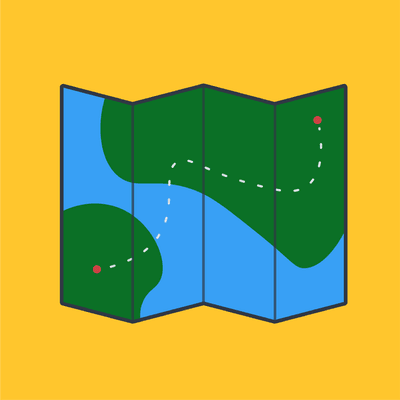

The Savvy Scientist
Experiences of a London PhD student and beyond
Thesis acknowledgements: Samples and how to write your own thesis or dissertation acknowledgements

Writing a thesis can be tricky. That’s why I’m starting a new series covering each section of the thesis, from thesis acknowledgements all the way to conclusions. I’ll be guiding you through the whole process, from what to include in your thesis to how to write it, along with examples from defended theses to help you to write your own.
We’ll begin by covering thesis acknowledgments. The acknowledgements section appears at the start of the thesis so it is often one of the first parts that everyone tries to tackle. As this will likely be your first taste of your thesis it can often feel quite intimidating to write!
Thankfully it’s also one of the easiest parts of the thesis to complete, which may help to give you a boost for the rest.
In this post we’ll cover everything to do with thesis acknowledgements: samples, what to include and how to write them. At the end I’ll also outline a 60 minute exercise which will get you preparing a first draft of your own! I’ve also got a similar post to craft your thesis title, which you can check out here .
I’m writing this post with a PhD thesis in mind but it could work just as well if you’re looking for help including acknowledgements in your Master’s or undergraduate thesis/ dissertation.
What is the purpose of the acknowledgements section in a thesis?
The acknowledgements section of your thesis is an opportunity to reflect on the people who have supported and shaped your PhD experience.
Don’t worry, although your examiners will be interested to read your acknowledgements section, you won’t really get judged on it in your PhD viva. This section is for you to share as little, or as much, as you want about everyone involved in your PhD journey.
The acknowledgements are a very personal section of your thesis and each PhD student will have different things they want to include. For example, many people wonder: How do I thank my family in a thesis? And the acknowledgements section is the answer!
Note – You can also use a thesis dedication to thank your family. This is a separate section to your thesis acknowledgements and is entirely optional. It’s usually just a single line, just like you might find at the front of some books. Most people don’t include a separate dedication section but you can if you want to go that extra step.
What to include in your thesis acknowledgements
There are usually no formal requirements dictating what to include in your acknowledgements. However, do double check for any potential rules at your specific institution.
In general the acknowledgements are the section of your thesis where you have some creative liberty and are not bound by rigid research protocols or guidelines.
Many students choose to use the acknowledgements section to thank people (or organisations) who:
- Introduced them to the topic
- Helped with their PhD application
- Funded the project
- Supervisors
- Technicians
- Partners, friends or family
- Or anyone else who made an impression along the way!
But remember, you can include whatever you want! For example in my own PhD acknowledgements, which you’ll read further down this post, I thanked the university for providing a green outdoor space for us.
Acknowledge whoever and whatever influenced your own PhD experience.
You may find it helpful to start by writing a list of everyone you wish to thank.
How do you write an acknowledgements section?
Since there are no guidelines to worry about, it is really up to you how you write your own thesis acknowledgements. You have a lot of freedom for what to include and how to write it.
However you may find the following suggested phases helpful as a starting point.
Who you want to thank…
- “First and foremost, I would like to express my sincere gratitude to…”
- “I must thank…”
- “A special thanks to…”
- “I would like to highlight two truly exceptional people from…”
- “I want to thank…”
- “In addition, I would like to mention”
- “I would also like to extend my thanks to…”
- “I want to give my deepest appreciation to…”
- “Finally, but the most importantly, I would like to thank…”
…then, why you want to thank them
It can be nice to also include why you’re thanking these people, using phrases such as:
- “…for the opportunity to be a part of this project”
- “…for always being there when I needed his support, reviewing my progress constantly, and guiding me through my PhD studies”
- “….for being a great bunch of people in and out of the lab”
- …”for all the guidance, support and outstanding feedback”
- “… who took their time to help teach me…”
- “…for her unlimited support and unconditional guidance during my PhD journey”
- “…were always there for discussions about anything that I was unsure on”
- “…whom has offered invaluable advice that will benefit me throughout my life”
- “…for supporting me since my undergraduate, and for the valuable discussions we had along the road”
- “…for making the past 4 years much more enjoyable and keeping me sane throughout the whole process”
Here is a whole example from an accepted PhD thesis:
Firstly, I want to thank [supervisor’s name(s)] for giving me the opportunity to work on this project, providing valuable guidance and feedback, and challenging me to grow as a scientist. Excerpt from Dr Wane’s thesis acknowledgements, available via this page or use this direct download link .
Some people will choose to use full names and titles for any professional acknowledgements and first names for any personal ones. Again, this is up to you.
To help illustrate the variety of thesis acknowledgement formats, we’ll shortly be coming on to some examples of acknowledgment sections from successfully defended theses.
Before then I want to cover some of the main questions relating to how to write your own thesis acknowledgements section:
How long should you spend writing your thesis acknowledgements?
My suggestion is to spend only an hour or two making a first draft. I suggest doing this well ahead of your final deadline so that you have time to come back to it. Even so, I’d certainly look to spend far less than one day’s work on it in total.
It is a “nice to have” and means a lot to a lot of people, but remember you’re really only writing this section for yourself. I probably spent about two hours writing mine in total, simply because it wasn’t a priority for me.
What order should you write your acknowledgements in?
A typical way to write your acknowledgements is to go from the most formal/academic relationships to the least.
It is normal to start with any funding bodies, then formal people like your PhD supervisors, then move through labmates, friends and family. But again, there are generally no rules!
How long should the acknowledgements section be?
You can include as much or as little as you want. My own PhD acknowledgements section was just under a page long and it consisted of 386 words or 1892 characters (without spaces).
Here is how it was formatted:

But let’s not just look at my thesis. Using Imperial’s publicly accessible database I went through 25 published PhD theses for you.
The average (mean) length of these 25 theses was 365 words and 1793 characters without spaces. Writing an acknowledgements section of length 350-450 words was the most common:

The shortest acknowledgements sections was 122 words(653 characters) long. The longest one consisted of 1022 words and 5082 characters. Hopefully this illustrates that you’re not really bound by any limits. Write as much or as little as you want for this section.

Sample thesis acknowledgements
My own phd thesis acknowledgement.
My own PhD thesis is available here *, the acknowledgements section is on page 5. Here is the complete version of my acknowledgements section:
I would like to acknowledge both EPSRC and the Class of 1964 Scholarship for their financial support. It has been an honour to be the inaugural recipient of the Class of 1964 Scholarship and I am indebted to the donors in providing me complete academic freedom in this research. An immense thank you to my PhD supervisors: Jonathan Jeffers, Ulrich Hansen and Julian Jones. Support and guidance throughout the project from you all has been invaluable. JJ in particular you’ve been a fantastic primary supervisor. Thank you to all the academics who helped me get to this stage. The late Dr Kajal Mallick and his Biomedical Materials course at the University of Warwick was a huge influence and without which I would have never followed this path. My “pre-doc” supervisors in Dr Helen Lee of University of Cambridge and in particular the remarkable Prof Judith Hall OBE of Cardiff University from whom I learned so much. Thanks to Alison Paul and Michael Lim for being so supportive when I was considering applying for PhDs. It has been an amazing experience working between two research groups across different departments, thanks to everyone from the Biomechanics and JRJ groups I’ve worked with and from whom I’ve learned so much. Thank you of course to the Hybrids team I’ve worked so closely on this project with: Fra, Gloria, Agathe, Maria, Silvia, it’s been great fun working with you all! Gloria in particular thanks for you all your help, support and friendship: your inclusivity is appreciated by many. Saman, I’ve been so pleased to have you working on DVC with me and being able to discuss ideas with you really has been invaluable. I am grateful to everyone I’ve collaborated with externally: Farah, Amin and Brett (Natural History Museum) plus Andy and Behzad (Royal Veterinary College), thank you all for your support and input. Thanks also to everyone I’ve met through the Environmental Society at Imperial in particular Chelcie: your friendship and support have added a lot to my life. Thanks to Imperial for providing space for the ESoc garden, taking a break and enjoy nature in this space has certainly improved my work. Thanks of course to my family for their support. Finally, thank you Jo for always being so supportive and helping me every step of the way. My PhD thesis, available here . Acknowledgements are on page 5.
*For me the thesis was a means to an end. I wanted my PhD and didn’t want to spend too long agonising over each page. Therefore, it is possible there are typos in there, if you read any of it: firstly well done, I haven’t looked at it much since submitting the final copy, secondly, please don’t tell me about any typos you find!
Other PhD thesis acknowledgement examples
Below are the other 24 published and openly accessible STEM PhD theses I found for this article.
For each person’s thesis, either follow the first link to be taken to the landing page or follow the second link to directly download their thesis: I gave you a choice in case you don’t want stuff to start downloading automatically from a random text link!

The list is formatted as follows:
- [Link to thesis page on repository], [which page the acknowledgements appear on], [direct link to download the thesis]
- Dr Shipman’s thesis , for the acknowledgements go to page 3. Direct download here .
- Longest acknowledgements section of the list at 1022 words.
- Dr Li’s thesis , page 11. Direct download here .
- Dr Podgurschi’s thesis , page 5. Direct download here .
- Dr Medjeral-Thomas’ thesis page 3. Direct download here .
- Dr Sztuc’s thesis , page 5. Direct download here .
- Dr Yap’s thesis , page 5. Direct download here .
- Dr Sukkar’s thesis , page 9. Direct download here .
- Dr Lo’s thesis , page 11. Direct download here .
- Dr Sullivan’s thesis , page 5. Direct download here .
- Dr Tawy’s thesis , page 3. Direct download here .
- Dr Wane’s thesis , page 2. Direct download here .
- Dr Addison’s thesis , page 4. Direct download here .
- Dr Wang’s thesis , page 5. Direct download here .
- Dr Sebest’s thesis , page 3. Direct download here .
- Dr Hopkins’ thesis , page 7. Direct download here .
- Dr Bates’s thesis , page 4. Direct download here .
- Dr Somuyiwa’s thesis , page 6. Direct download here .
- Dr Reynolds’ thesis , page 5. Direct download here .
- My labmate’s thesis, who wrote the acknowledgements in a different style to the rest by using bullet points.
- Shortest acknowledgements section of the list at 122 words.
- Dr Manca’s thesis , acknowledgements on page 5. Direct download here .
- Dr Liu’s thesis , page 5. Direct download here .
- Dr Hotinli’s thesis , page 7. Direct download here .
My top tips for writing your own thesis acknowledgements
- Don’t spend too long on them. The acknowledgements section is really not worth spending too much time on. Even worse, since they appear at the start of your thesis, it is tempting to write your acknowledgements first. This can be fine, or, it can be an opportunity for lots of unnecessary procrastination. Which I why I instead suggest that you…
- Write your acknowledgements at the end of your first draft of the thesis. There is no need to write your thesis in the order it is presented. If you write your acknowledgements at the end you’ll be less likely to spend precious time on a section which really doesn’t warrant too much brain power.
- Don’t stress about it. The acknowledgements are merely for yourself and for anyone close to you that you want to thank. There are far more important sections for you to be particular about!
- Remember: You can make changes after you submit the copy for your viva. As with everything in your thesis, you can make changes after you submit the thesis for your viva. The real “final” copy is when you submit your thesis to the university for archiving. Which is even more reason to not spend too much time writing it the first time around.
Draft your own thesis or dissertation acknowledgements in 60 minutes
Hopefully you now feel inspired to start writing your own thesis acknowledgments!
For the exercise below I’d suggest setting a stop-watch on your phone and move on to the next section when the alarm goes, even if you’ve not fully finished. The aim is to have a rough draft at the end which you can polish off at a later point in time.
- Read a few of the example thesis acknowledgements above to get a feel for the structure ( 15 mins )
- List everyone (or everything!) you wish to thank – including any personal and professional acknowledgements in addition to funding bodies if relevant ( 10 mins )
- Decide on a rough order in which to thank them ( 5 mins )
- Craft some sentences using the phrases mentioned above ( 30 mins )
Congratulations you’re now well on your way to having one section of your PhD thesis completed!
I hope this post has been useful for constructing your own thesis or dissertation acknowledgements. It is the first in a series of posts aiming to help your thesis writing by delving into each section in depth. Be sure to let me know if you have any questions or suggestions for other content which you would find useful.
Subscribe below to stay updated about future posts in the series:
Share this:
- Click to share on Facebook (Opens in new window)
- Click to share on LinkedIn (Opens in new window)
- Click to share on Twitter (Opens in new window)
- Click to share on Reddit (Opens in new window)
Related Posts

How to Master Data Management in Research
25th April 2024 27th April 2024

Thesis Title: Examples and Suggestions from a PhD Grad
23rd February 2024 23rd February 2024

How to Stay Healthy as a Student
25th January 2024 25th January 2024
Leave a Reply Cancel reply
Your email address will not be published. Required fields are marked *
Notify me of follow-up comments by email.
This site uses Akismet to reduce spam. Learn how your comment data is processed .
Privacy Overview
- EXPLORE Random Article
How to Write Acknowledgements for a Thesis
Last Updated: January 19, 2023
This article was co-authored by wikiHow Staff . Our trained team of editors and researchers validate articles for accuracy and comprehensiveness. wikiHow's Content Management Team carefully monitors the work from our editorial staff to ensure that each article is backed by trusted research and meets our high quality standards. This article has been viewed 18,946 times.
The acknowledgements section of your thesis provides you with an opportunity to thank anyone who supported you during the research and writing process. Before writing your acknowledgements, it's helpful to first choose who exactly you want to include. Then, you can construct your acknowledgements using the right tone and language to properly thank those who contributed to and supported your work in both academic and personal ways.
Choosing Who to Thank

- If you choose not to include funders or advisors in your acknowledgements, you could risk insulting them. This could prevent them from working with you in the future, and could even lead them to refuse to write you any letters of recommendation.
- In many cases, you'll have 1 academic advisor who is the chair of your thesis review committee, and then 2 or 3 additional faculty members who serve as secondary co-advisors. If this is the case, make sure that you include your secondary co-advisors in addition to your chair.

- This could be other faculty members, fellow students, research assistants, archivists, librarians, or other institutional personnel who assisted in the research and writing process in any way.
- Professional contributors could include people who read and reviewed your work, helped facilitate research, or talked through challenging concepts and ideas with you throughout the thesis-writing process.

- For example, while you may be close with and enjoy seeing a particular cousin or childhood friend, if they weren't actively supporting you during this time, you likely won't have space to include them in your acknowledgements.

- If a well-known academic in your field was particularly inspirational but did not read your work, you can also mention them in your acknowledgements if you have space to do so.

- If your faith is particularly important to you, you could also consider dedicating your thesis to the higher power you believe in. This could be done within the acknowledgments, or on a separate dedication page depending on your institution's formatting preferences.

- If someone was a great influence in your life but didn't contribute to your thesis directly, you could consider writing them a personal letter or email instead of including them in your acknowledgements.
Constructing Your Acknowledgements

- While there's no set rule about acknowledgement order, in general, funders are thanked first for their financial support, then academic supervisors, followed by other academics and professionals, as well as colleagues and classmates.

- If you're afraid that your personal supporters might be offended by being acknowledged last, you could explain to them that this is a professional courtesy.

- Since your academic advisor was likely a big part of your research and writing process, you'll likely want to expand on how they helped you. For example, you could write, “I would like to thank my advisor, Dr. Timothy Kelly, for his guidance and prompt feedback throughout this process.”

- In contrast, you can include only first names for your personal acknowledgements if you choose.

Using the Right Tone and Language

- If you focus on your own accomplishments too much, you could risk coming off as a bit smug. Instead, let the quality of your work speak for itself and use the acknowledgements to focus on others.

- This is particularly important to keep in mind when you thank your academic peers or faculty members that you've developed a personal relationship with, as it can be tempting to write too casually in these instances. [16] X Research source
- For example, to thank your advisor, you could write, “I could not have completed this work without the unwavering support of my chair, Dr. Sherre McWhorter. Dr. McWhorter, your patience and guidance made this work possible.”

- If your parents provided substantial support for you during this process, thank them in a personal manner by saying something like, “It is impossible to extend enough thanks to my family, especially my parents, who gave me the encouragement I needed throughout this process.”
- Instead of naming each of your friends individually, you could try thanking them collectively in a more casual manner. For example, you could write, “To my friends, this would have been a much more difficult feat without you. Thank you all for your unwavering support and for reminding me to take breaks and have fun when I’ve been stressed out.”

- If you want to thank someone for their support in a more emotional, personal manner, try thanking them in person or with a handwritten letter.
Expert Q&A
You might also like.

- ↑ https://www.scribbr.com/dissertation/acknowledgements/
- ↑ https://www.phdstudent.com/Writing-Tips/writing-acknowledgements-your-personal-gratitude
- ↑ Jeremiah Kaplan. Research & Training Specialist. Expert Interview. 2 September 2021.
- ↑ https://elc.polyu.edu.hk/FYP/html/ack.htm
About this article

Did this article help you?

- About wikiHow
- Terms of Use
- Privacy Policy
- Do Not Sell or Share My Info
- Not Selling Info
Thesis Acknowledgement
Foremost, I would like to express my sincere gratitude to my advisor Prof. Ying Wu for the continuous support of my Ph.D study and research, for his patience, motivation, enthusiasm, and immense knowledge. His guidance helped me in all the time of research and writing of this thesis. I could not have imagined having a better advisor and mentor for my Ph.D study. Besides my advisor, I would like to thank the rest of my thesis committee: Prof. Aggelos K.Katsaggelos, Prof. Thrasyvoulos N.Pappas, and Dr. James Crenshaw, for their encouragement, insightful comments, and hard questions. My sincere thanks also goes to Dr. James Crenshaw, Dr. Senthil Periaswamy, and Dr. Qiong Liu, for offering me the summer internship opportunities in their groups and leading me working on diverse exciting projects. I thank my fellow labmates in Northwestern Vision Group: Gang Hua, Ting Yu, Zhimin Fan, Shengyang Dai, Junsong Yuan, Jiang Xu, Jialue Fan, and Neelabh Gupta, for the stimulating discussions, for the sleepless nights we were working together before deadlines, and for all the fun we have had in the last four years. Also I thank my friends in Tsinghua University: Chen Fan, Wensheng Wang, Bo Qin, Xiwei Wang, Yonggang Zhao, Hua Chen, Junlin Li, and Rui Zhou. In particular, I am grateful to Dr. Chen Fan for enlightening me the first glance of research. Last but not the least, I would like to thank my family: my parents Siyu Yang and Xiaolan Ding, for giving birth to me at the first place and supporting me spiritually throughout my life.
Academia Bees
Acknowledgement for PhD Thesis (5 Samples and Guide)
January 12, 2024
No Comments
By Mohsin Khurshid
Embarking on your PhD journey? Unveil the art of crafting sincere acknowledgments with our guide. Explore 5 curated samples to master the skill of expressing gratitude in your PhD thesis. From mentors to contributors, discover the perfect tone for your acknowledgment section. Stick around for a comprehensive guide on crafting your own.
Table of Contents
- 1.1 PhD Acknowledgement Sample
- 1.2 PhD Thesis Acknowledgement Sample
- 1.3 PhD Dissertation Acknowledgement (Long Sample)
- 1.4 Acknowledgement PhD Thesis (Short Sample)
- 1.5 Sample Acknowledgement for PhD Thesis File
- 2 How to Write Acknowledgement for PhD Thesis?
- 3 Conclusion
Best Five PhD Thesis Acknowledgement Samples
Curious about exemplary PhD thesis acknowledgments? Dive into our handpicked collection of 5 samples. Each one offers a unique perspective, providing inspiration for expressing your gratitude in your dissertation. From mentor appreciation to acknowledging contributors, these samples serve as valuable templates for your own heartfelt acknowledgments.
PhD Acknowledgement Sample
I extend my heartfelt gratitude to my esteemed supervisors, Prof. XXX and Dr. XXX, whose unwavering guidance, continuous support, and boundless patience have been the cornerstones of my PhD journey. Their wealth of knowledge and extensive experience has not only enriched my academic endeavors but has also been a source of inspiration in my daily life.
Special thanks to Dr. XXX and Dr. XXX for their technical expertise, contributing significantly to the success of my study. The members of XXX have played a pivotal role in making my academic experience and life in the UK truly wonderful through their generous help and support.
Finally, I express deep appreciation to my parents, my wife, and my children, whose understanding and encouragement have been indispensable. Without their unwavering support, completing my study would have been an insurmountable challenge.
PhD Thesis Acknowledgement Sample
My sincere appreciation goes to my esteemed supervisor, Dr. XXX, whose invaluable supervision, unwavering support, and expert guidance have been instrumental throughout my pursuit of a PhD degree. I extend gratitude to the Faculty of XXX for providing the funding opportunity that allowed me to undertake my studies at the esteemed Department of XXX, University of XXX.
Dr. XXX deserves special acknowledgment for her influential support, significantly shaping my experimental methods and offering insightful critiques of my results. I also express my thanks to Dr. XXX, Dr. XXX, and Dr. XXX for their mentorship, which has greatly contributed to my academic growth.
Heartfelt thanks to my friends, lab mates, colleagues, and the research team – XXX, XXX, XXX, XXX – for the cherished time spent together in the lab and social settings. I am deeply thankful to my family and friends for their unwavering encouragement and support throughout my academic journey.
PhD Dissertation Acknowledgement (Long Sample)
I extend my sincere gratitude to my esteemed advisor, Prof. _______, whose unwavering support, patience, motivation, and profound knowledge have been instrumental throughout my Ph.D. study and related research. His guidance has been a beacon, shaping my research endeavors and enriching the writing of this thesis. I am immensely grateful for the privilege of having such a dedicated advisor and mentor.
In addition to my advisor, I express my heartfelt thanks to the members of my thesis committee: Prof. __________, Prof. ___________, and Dr. ____________. Their insightful comments, encouragement, and challenging questions spurred me to broaden my research perspectives.
Special appreciation is due to Dr. _________, Dr. ______________, and Dr. __________ for providing me the opportunity to intern with their team and granting access to invaluable laboratory resources. Without their precious support, the successful conduct of this research would not have been possible.
I am indebted to my fellow labmates for their stimulating discussions, the collaborative efforts during sleepless nights leading up to deadlines, and the camaraderie that enriched the past four years. Gratitude extends to my friends at __________________________ for their companionship, with a special acknowledgment to Dr. Chen Fan for offering a first glimpse into the world of research.
Last but certainly not least, heartfelt thanks go to my family—my parents, brothers, and sister—for their unwavering spiritual support throughout the thesis writing process and in all aspects of my life.
Acknowledgement PhD Thesis (Short Sample)
I extend my deepest appreciation to my advisor, Prof. _______, for being a guiding light throughout my Ph.D. journey. His unwavering support, patience, and immense knowledge have been indispensable. My heartfelt thanks go to the members of my thesis committee—Prof. __________, Prof. ___________, and Dr. ____________—for their valuable insights and encouragement.
Special gratitude is reserved for Dr. _________, Dr. ______________, and Dr. __________ for their support during my internship and providing access to vital research facilities. I am grateful to my labmates for their camaraderie and shared dedication, and to my friends at __________________________ for their constant support.
Last but not least, my family—parents, brothers, and sister—deserve profound thanks for their unwavering encouragement and spiritual support throughout this academic pursuit.
Sample Acknowledgement for PhD Thesis File
In presenting this PhD thesis, I express my sincere gratitude to Prof. _______, my dedicated advisor, for his invaluable guidance. My appreciation extends to the members of my thesis committee—Prof. __________, Prof. ___________, and Dr. ____________—for their constructive comments and motivation.
Thanks to Dr. _________, Dr. ______________, and Dr. __________ for providing a rewarding internship experience and access to essential research resources. To my labmates and friends at __________________________, your collaboration and support have been cherished.
Lastly, heartfelt thanks to my family—parents, brothers, and sister—for their enduring encouragement and unwavering belief in my academic journey. This thesis file stands as a culmination of collective support and collaborative effort.
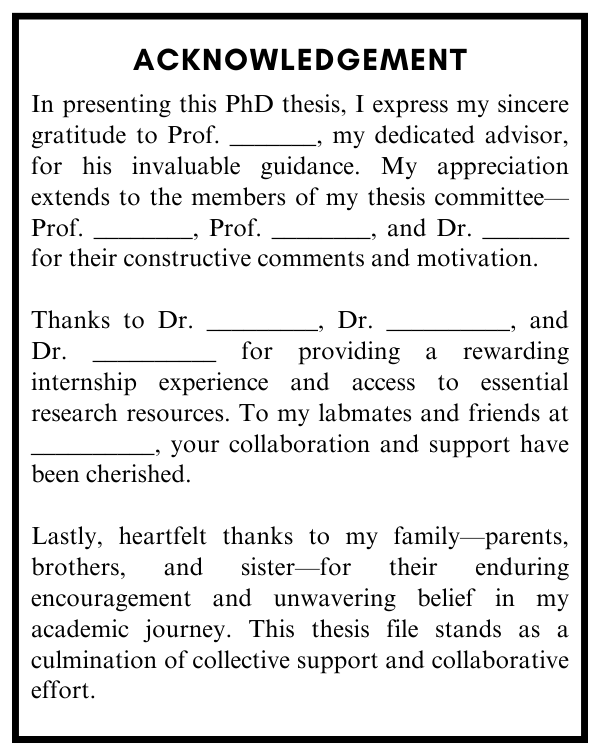
How to Write Acknowledgement for PhD Thesis?
Writing the acknowledgment section for your PhD thesis is an essential expression of gratitude towards those who played a significant role in your academic journey. Follow these guidelines to craft a meaningful and well-structured acknowledgment:
1. Identify Key Contributors:
- Acknowledge your primary advisor and thesis committee members first.
- Recognize mentors, colleagues, and institutions that provided support.
2. Be Specific and Personal:
- Mention individuals by name and specify their contributions.
- Share personal anecdotes or experiences to make the acknowledgment genuine.
3. Use Gracious Language:
- Employ a positive and appreciative tone throughout the acknowledgment.
- Express gratitude for the specific ways each individual or institution contributed.
4. Order of Mention:
- Typically, advisors and committee members are acknowledged first, followed by other contributors.
- Consider grouping individuals by their role or contribution.
5. Include Professional Courtesy:
- Follow any specific guidelines or formalities suggested by your institution.
- If acknowledging professionals or organizations, maintain a respectful and professional tone.
6. Avoid Overuse of Formal Language:
- Keep the language clear, concise, and heartfelt.
- Strike a balance between formality and a personal touch.
7. Consider Length and Relevance:
- Keep the acknowledgment section concise, focusing on individuals or entities directly related to your thesis .
- Ensure that all acknowledgments are relevant to the academic context.
8. Express Gratitude to Loved Ones:
- Don’t forget to express heartfelt thanks to family and friends who provided emotional support.
“I extend my deepest appreciation to my primary advisor, Prof. _______, for their unwavering guidance. Special thanks to my committee members—Prof. __________ and Dr. __________—for their insightful comments. Gratitude to Dr. _________ and Dr. ______________ for their valuable contributions during my internship. I am also indebted to my labmates, friends at __________________________, and my family for their enduring support. Crafting this acknowledgment allows me to express my profound gratitude to each contributor, without whom this PhD thesis would not have been possible.”
Remember, the acknowledgment is a personal expression of gratitude, so tailor it to reflect your genuine appreciation for the support received during your PhD journey.
In wrapping up, these acknowledgments weave a story of collective support that fueled the success of your PhD thesis. Each thanked individual, from advisors to family, played a vital role in your academic journey. Beyond mere formalities, this acknowledgment is a tribute to shared dedication and encouragement. As you step into the next phase of your academic or professional pursuits, carry with you the echoes of gratitude and collaboration. Here’s to the collaborative spirit that turned challenges into triumphs and the connections that made your thesis journey remarkable.
6 Best Master Thesis Acknowledgement Samples
Best acknowledgement for dissertation (10 samples and guide), leave a comment cancel reply.
Save my name, email, and website in this browser for the next time I comment.

Acknowledgement in Research Paper – A Quick Guide [5 Examples]
The acknowledgement section in your research paper is where you thank those who have helped or supported you throughout your research and writing. It is a short section of 3-5 paragraphs or no more than 300 words you put on a page after the title page.
In this post, we are going to provide you with five examples of acknowlegdement section and a handful of best practices you can make your work look professional.

Saying thank you with style
How to write an acknowledgement: the complete guide for students, why should i include an acknowledgement in my research paper.
Acknowledging assistance and contributions from others can establish your integrity as a researcher. This will eventually make your work more credible.
What should be acknowledged about (aka thankful for)?
In your acknowledgement, you can show gratitude for those who provide you with resources in the following area:
- Technical help may include people who helped you by providing materials and supplies.
- Intellectual help includes academic advice and assistance.
- Mental help can be any kind of verbal support and encouragement.
- Financial support that is obviously related to monetary support
Who should be included in the acknowledgement of a research paper?
You can include everyone who helped you technically, intellectually, or financially (assistance with grants or monetary help) in the process of researching and writing your research paper. Except for your family and friends, you should always include the full names with the title of these individuals:
- Your profession, supervisor, or teacher
- Academic staff (e.g. lab assistant) of your school/college
- Your department, faculty, college, or school
- Classmates, teammates, co-workers, or colleague
- Friends and family members
You can start with your professor or the individuals who supported you the most throughout the research. And then you can continue by thanking your institution and then the reviewer who reviewed your paper. Then you can thank your friends and families and any other individual who helped.
What is the tone of the acknowledgement in a research paper?
You should write your acknowledgement in formal language with complete sentences. It is appropriate to write in the first person (‘I’ for a single author or ‘we’ for two or more).
Note that personal pronouns such as ‘I, my, me …’ are nearly always used in the acknowledgements only. For the rest of the research paper, such personal pronouns are generally avoided.
Writing an acknowledgement for research paper is one of the important parts of your project report. You need to thank everyone for helping you with your paper . Here are some examples of acknowledgement for your research paper.
Acknowledgement in Research Paper: Example 1
Acknowledgement in research paper: example 2, acknowledgement in research paper: example 3, acknowledgement in research paper: example 4, acknowledgement in research paper: example 5.
You can use these or try to create your own version for your project report. Also, you can use our auto acknowledgement generator tool to automatically generate acknowledgement for your project.
Where should I put the acknowledgement section?
The acknowledgements section should appear between your title page and your introduction in your research paper.
How long is an acknowledgement in a research paper?
The acknowledgement section (usualy inserted as a page) of your research paper should consist of 3-5 paragraphs or no more than 300 words you put on a page after the title page.
Should I use the full names of family members in an acknowledgement?
You do not necessarily need to use the full name for your family and friends (it would sound pretty awkward to use the full name of your parent or spouse right?), you should always include the full names with the title for all other individuals in your acknowledgement.
Can I use “first person” in an acknowledgement?
Yes. It is appropriate to write in the first person (‘I’ for a single author or ‘we’ for two or more).
What is an acknowledgement in academic writing?
An acknowledgement is a page is where you show appreciation to people who helped or supported you intellectually, mentally, or financially in your academic writing.
It should be no longer than one page.

More Definitions on Acknowledgement
- Acknowledgement vs Empathy What is the Difference Between Acknowledgement and Empathy?
- Acknowledgement vs Acceptance Does Acknowledgement Mean Acceptance? Lessons From History and the Bible
- Acknowledgement vs Agreement Is Acknowledgement the Same as Agreement?
- Acknowledgement Receipts vs Official Receipts What’s the Difference Between Acknowledgement Receipts and Official Receipts?
“Acknowledgement” vs “Acknowledgment”… …what the hack?

Both “acknowledgement” and “acknowledgment” are used in the English-speaking world. However, acknowledgement with the “e” in the middle is more commonly used. It is up to 24.5 times more popular in the top 5 English-speaking countries in the world.
Other Popular Acknowledgement Examples
For work or business Acknowledgement Receipt of Payment [4 Examples] Acknowledging Receipt of Documents: A Quick Guide with Examples Acknowledgement for Presentation [9 Examples] Acknowledgement for Job Offer [3 Examples] Acknowledgement for Business Plan [4 Examples] Acknowledgement for Work Immersion [5 Examples] Acknowledgement of Receipt of Appraisal [3 Examples] Acknowledegment of Debt [5 Examples] Resignation Acknowledgement for Employers [5 Examples]
Academic Acknowledgement for Research Paper [5 Examples] Acknowledgement for Internship Report [5 Examples] Acknowledgement for Thesis and Dissertation [15 Examples] Acknowledgement for Portfolio [5 Examples] Acknowledgement for Case Study [4 Examples] Acknowledgement for Academic Research Paper [5 Examples] Acknowledgement for College/School Assignment [5 Examples] Acknowledgemet to God in Reports [5 Examples]
Others Acknowledgement to Funeral Attendees [5 Examples] Funeral Acknowledgement Templates (for Newspapers and Websites) Common Website Disclaimers to Protect Your Online Business Notary Acknowledgement [5 Examples]
Acknowledgement Examples for School/College Projects
Most popular Acknowledgement For School/College Projects [7 Examples] Acknowledgement for English Project [5 Examples] Acknowledgement for Project Class 11 and 12 Acknowledgement for Project of Class 8, 9 and 10 By subjects Acknowledgement for Accounting Project [3 Examples] Acknowledgement for Business Studies Project [5 Examples] Acknowledgement for Chemistry Project [5 Examples] Acknowledgement for Computer Project [5 Examples] Acknowledgement for Economics Project [5 Examples] Acknowledgement for English Project [5 Examples] Acknowledgement for Geography Project [5 Examples] Acknowledgement for History Project [5 Examples] Acknowledgement for Maths Project for Students [5 Examples] Acknowledgement for Physics Project [5 Examples] Acknowledgement for Social Science Project [5 Examples] Others Acknowledgement for Group Project [5 Examples] Acknowledgement for Graduation Project [5 Examples] Acknowledgement for Disaster Management Project [3 Examples] Acknowledgement for Yoga Project [3 Samples]
How-to Guides on Academic Writing and Others
Most popular How to Write an Acknowledgement: The Complete Guide for Students How to Write an Acknowledgement for College Project? How to Write a Dedication Page for a Thesis or Dissertation? More on acknowledgements How to Write Acknowledgment for a Dissertation or a Thesis? Is Acknowledgement and Dedication the Same? Thesis or Dissertation How to Write a Master’s Thesis: The Ultimate Guide How to Write a Thesis Proposal? How to Write an Abstract for a Thesis? How to Write a Preface for a Thesis? Others How to Write an Introduction for a Research Paper? 7 Real Research Paper Examples to Get You Started How to Write Cover Letter for an Internship Program? How to Write an Internship Acceptance Letter? How to Write a Leave Application? For Schools and the Workplace How to Write a Resignation Letter?
Introduction to Academic Writing
By O.P. Jindal Global University Duration: 16-hour Cost: FREE Gain an in-depth understanding of reading and writing as essential skills to conduct robust and critical research for your writing.
Writing in English at University
By Lund University Duration: 24-hour Cost: FREE Learn how to structure your text and arguments, quote sources, and incorporate editing and proofreading in your academic writing.
Academic English: Writing Specialization
By the University of California, Irvine Duration: 6 months Cost: Free 7-day trial, USD39 per month The skills taught in this Specialization will empower you to succeed in any college-level course or professional field. You’ll learn to conduct rigorous academic research and to express your ideas clearly in an academic format. Share your Course Certificates in your LinkedIn profile, on printed resumes, CVs, or other documents.

Thank you, your samples really helped me.
This is great! Your samples really helped me in my research. Thank you and more power!
I’m so grateful that you make this kind of blog, I really need this for my research. Thank you so much… God bless you.
Thank you so much for the samples you have provided, it has helped me a lot.
Leave a Comment Cancel Reply
Your email address will not be published. Required fields are marked *
Save my name, email, and website in this browser for the next time I comment.

College of Engineering
Academic advising.
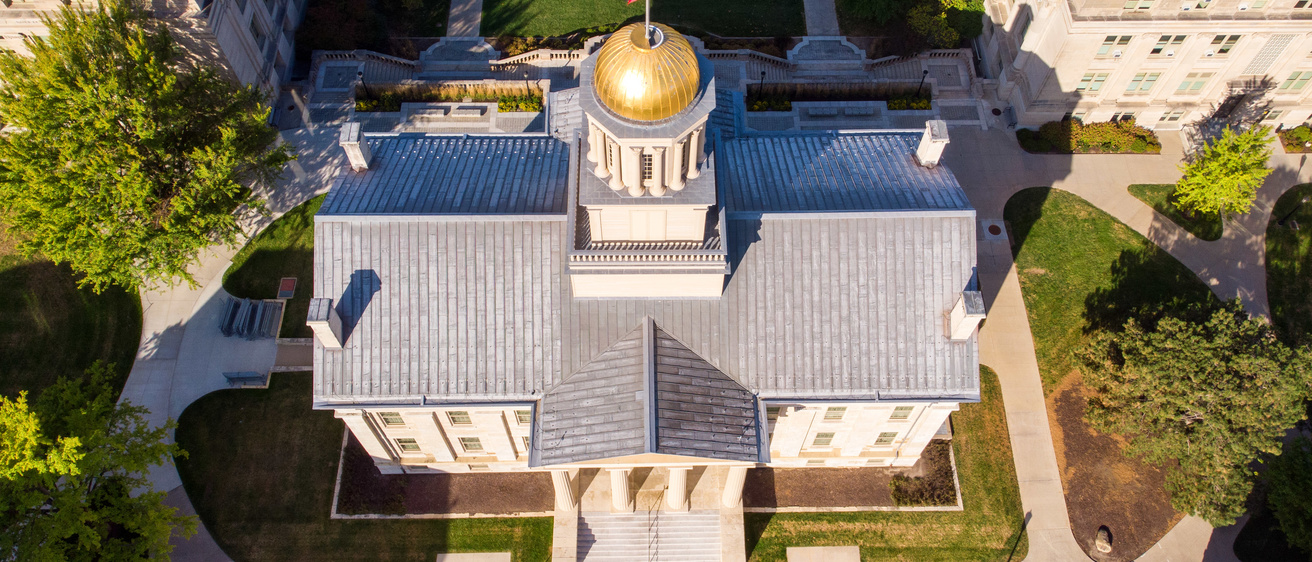
First Year and Undeclared
Advising for first year and undeclared engineering students takes place in the Student Development Center. Students are required to sign up for a time to meet with a professional advisor before early registration for the upcoming semester begins. Appointments can be made either through MyUI (Student Information - Advising Appointment), or by contacting the Student Development Center at [email protected] or 319-335-5763 or 3612 Seamans Center.
Undeclared engineering majors should declare their program of study no later than the start of the spring semester of their sophomore year.
Advising expectations for students
Faculty and Advising
Currently enrolled, declared engineering students are required to meet with their faculty academic advisor at least once a semester prior to registering for the next semester's courses, generally the week before early registration begins. Students will be able to schedule an appointment with their advisor through MyUI to meet and discuss their upcoming semester courses; alternatively, faculty will place a sign-up sheet outside their office door with available times. Typically, students can begin scheduling online or by sign-up sheet two weeks prior to early registration. If a student is unable to meet with their faculty during the times listed, it is the student's responsibility to contact the faculty member and set up a time that will fit within their schedule.
Students can find out who their academic advisor is by logging into MyUI and going to "Student Information" then "Program of Study and Advisors." Students wishing to change their academic advisor may do so by completing the Change of Academic Advisor form.
Advising expectations for students :
- To meet with their faculty advisor at least once a semester, although it is highly recommended to meet more frequently
- To arrive on time as scheduled
- To come prepared to the appointment with list of future courses, questions and concerns
- Students with questions regarding the pre-requisite check and policies should refer to the Pre-Requisite Q & A .
- See here for more advising expectations for students .
Peer Advising
The Peer Advisor program is a resource developed by students, for students. They offer advice on their respective majors, course combinations, course loads, and share their personal journeys to a career in engineering. Additionally, they provide support to their peers through workshops and outreach.
Come to the Student Development Center, 3612 Seamans Center, for assistance with your questions about majors, general education courses, or policies and procedures. The peer advisors work closely with the professional academic advising staff.
Meet our peer advisors
Pre-Professional Advising
Students who have declared a pre-professional major have the opportunity to meet with an additional advisor in the Academic Advising Center, C210 Pomerantz Center, throughout their undergraduate career. The pre-professional advisors will help students as they prepare for their application to graduate or professional school. These programs include pre-law, pre-medicine, pre-physical therapy, and other pre-health programs.
If you are interested in pursuing a pre-professional major in addition to your degree in engineering, email you advisor to declare.
Pre-Health Resources Pre-Law Resources
'Something More' Advising
In the College of Engineering, we hope that students will take advantage of numerous opportunities to get involved beyond the classroom to become an “Engineer and something more.” If you are interested in learning more about the opportunities below, you are welcome to schedule an appointment by contacting the Student Development Center at [email protected] , 319-335-5763 , or 3612 Seamans Center.
- Internships and co-ops
- Study abroad
- Student organizations
Advising Frequently Asked Questions
How do i add a course.
- You can add most courses on MyUI without any required approvals until Monday, January 22 at 11:59 pm . Search for the course on the “Course Type” search on MyUI ̶ Courses and Registration , located below the List View of your current courses. Once you identify an open section that works in your schedule, you can enroll instantly by clicking on the blue “ Enroll ” link on the right side.
- For assistance, review a step-by-step tutorial of the add process.
- If you do not receive the permissions by the next business day after your initiated request, call the department offering the course and your academic department or academic advisor.
- You will be able to access the course’s ICON site the following day.
- The last day to add most academic courses without Dean’s approval (which requires extenuating circumstances) is Monday, January 29 at 4:30 pm .
- See the Registrar's website for more information about adding courses .
HOW DO I CHANGE SECTIONS?
You can change sections on your own on MyUI without any required approvals until Monday, January 22 at 11:59 pm . Log into MyUI ̶ Courses and Registration . On the List View of your courses, scroll to the section you would like to change and click the “Change” link on right side. Select “Change Section” and choose your desired section from the list of available options. Click to confirm the change.
- Starting Tuesday, January 23 , you will need to request permissions from the instructor of the new section. You can initiate a section change through email following the process outlined on the Change of Registration Form webpage .
- See the Registrar's website for more information about changing sections.
HOW DO I ADD MYSELF TO A WAITLIST?
- First, check to see if there are open seats in any sections of the course you are interested in - seat availability changes frequently in the first two weeks of the semester. Search for the course on the “Course Type” search on MyUI ̶ Courses and Registration , located below the List View of your current courses. Once you identify an open section that works in your schedule, you can enroll instantly by clicking on the blue “ Enroll ” link on the right side.
- If all sections that work with your current course schedule are closed, select a section and click on the blue “ Join Waitlist ” link on the right side of the page. To increase your chances of enrolling, add yourself to any and all waitlists for sections that will work with your schedule.
- Continue to monitor email and text messages closely. If a waitlist seat is offered to you, you must follow the email/text instructions to fully add the course on MyUI. Waitlist seat offers expire after 24 hours.
- MyUI waitlists are only active until Monday, January 22 at 11:59 pm . Waitlists will no longer be used for filling seats that open up in a given course after that date. To add the course, you will need to initiate an add request and receive the instructor’s permission.
- See the Registrar's website for more information about waitlists .
HOW DO I DROP A COURSE?
- Most students can drop a class on MyUI without any permissions/authorizations until Monday, January 22 at 11:59 pm. Log into MyUI ̶ Courses and Registration . On the List view of your courses, scroll to the course you would like to drop and select the blue “Drop” link on right side of the page. Ensure that you click through all of the required screens to confirm the drop. International students and athletes may need to request additional permissions for a drop; specific instructions will be provided when initiating the drop process.
- Note that your academic advisor is not automatically notified of your request, so you should email them to request they authorize your drop. I t is your responsibility to obtain the required permissions in a timely manner, so if you do not have the requested authorization by the deadline, call your academic department to ensure that the drop is processed in time.
- Monday, April 15 by 4:30 pm is the last day to drop a class without a ‘W’ on your transcript. A ‘W’ on the transcript means you withdrew from a course. Please contact your academic advisor with any questions.
- The last day to drop most semester-length academic courses without Dean’s approval (which requires extenuating circumstances) is Monday, April 15 at 4:30 pm.
- If you are thinking of dropping all your courses, often referred to as ‘ withdrawing ’ from the University, contact your academic advisor or call the Student Development Center at 319-335-5763 to review the withdrawal process.
- See the Registrar's website for more information about dropping courses.
HOW DO I RESOLVE COURSE CONFLICTS?
- A red asterisk (*) on your schedule indicates that there is a conflict between course times. Take a close look at the class times and ensure that none of your lectures, labs, or discussions overlap. To resolve these conflicts, follow the instructions to change sections or stop by 3612 SC to speak with an academic advisor for assistance.
- If you cannot spot overlapping course times, the conflict may be a mid-term exam that is scheduled during the regular meeting time for another course. You should plan to attend your regularly scheduled course and email the professor giving the exam to set-up an alternative testing time. This is quite common, so do not stress, but make sure you make arrangements with your professor well in advance.
HOW DO I MEET WITH AN ACADEMIC ADVISOR?
- During the first two weeks of the semester, academic advisors in the Student Development Center, 3612 SC, offer drop-in hours from 10am-12pm and 1pm-3pm. These times are mostly for new, incoming students as they make adjustments to their first semester schedules at Iowa, but these can also be a good first stop if you are unsure who to contact.
- Beginning Monday, January 29 , and continuing through the entire semester, log into MyUI to see if your advisor offers online scheduling through the Advising Appointment tile. If you do not see appointments available, email your advisor directly to request an appointment. You can also contact your academic department with questions.
- Peer Advisors are available daily between 10:00 am – 12:00 pm and 12:30 – 3:00 pm in 3612 SC. If you prefer to meet with a Peer Advisor virtually, sign up for an appointment on their website . Visit the Peer Advisor website for more information including bios, schedule by major, and the option to schedule an individual appointment with a peer advisor.
HOW DO I ADD A MINOR, CERTIFICATE and/or PRE-MED DESIGNATION?
- You can add most minors and certificates on your own on MyUI ̶ Student Information ̶ Programs of Study & Advisor . You can then request a new degree audit to review the course requirements.
- Pre-health : Contact the Academic Advising Center directly by emailing [email protected] or calling (319) 353-5700 and request a pre-health advisor.
HOW DO I CHANGE MY MAJOR?
- WITHIN ENGINEERING : Complete the “Change of Major /Program of Study” form on the Academic Forms page . Your major will be changed and a new advisor assigned (if needed) within one week.
- OUTSIDE of ENGINEERING : Stop by the Student Development Center, 3612 SC, to meet with a professional advisor to review the process of changing colleges. If you are making the decision during the first week of the semester, stop by as soon as possible as it may be possible to make the change effective immediately.
WHAT DO I DO IF I AM SICK?
- The health of our community is important. Advisors in the Student Development Center are offering both virtual and in-person academic advising appointments. If you are feeling less than 100%, we encourage you to take advantage of virtual academic advising appointments or reschedule your in-person appointment for a later date.
- Specific guidance for what to do if you are sick, test positive for COVID-19, or may have been exposed, is available on the “What to do if you’re sick” UI Coronavirus website .
- If you feel sick and have symptoms consistent with COVID-19, stay home and isolate yourself as much as possible. If you develop symptoms while in class or on campus, go home or return to your dorm room. Call a health care professional who can assess your symptoms and risk factors and determine whether you need testing. Visit the Student Health website for information about how to request a test. If you need to speak to a nurse, contact Student Health by calling the Nurseline ( 319-335-9704 ). If you test positive, follow the instructions on the UI Coronavirus website . Self-report via the university's online system using this link and monitor your email for additional instructions.
- If you need to miss class, review the standard university absence from class policies and contact your instructor as soon as possible to discuss how to make up work.
ACADEMIC SUCCESS RESOURCES
- The College of Engineering offers a wide range of academic support resources for students. You are encouraged to visit Engineering Tutoring , Sunday – Thursday from 6:00 – 9:00 pm, in-person in 3612 SC. Tutoring will begin on Sunday, January 21 .
- Additional University of Iowa campus resources are listed here – we encourage you to try different resources to find the one(s) that will work best for you!
Quick Links

Office of the Registrar
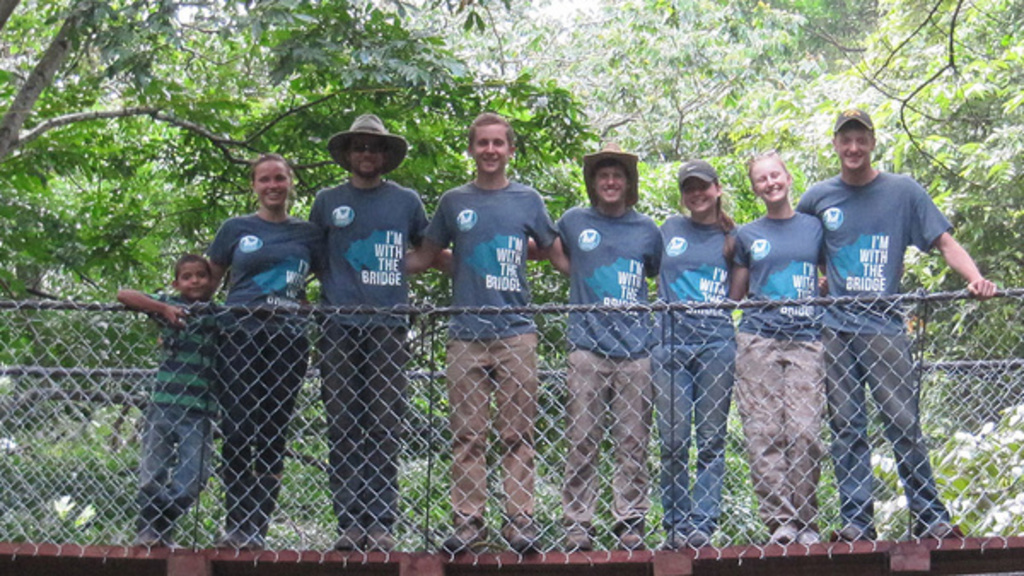
Taking Summer Courses
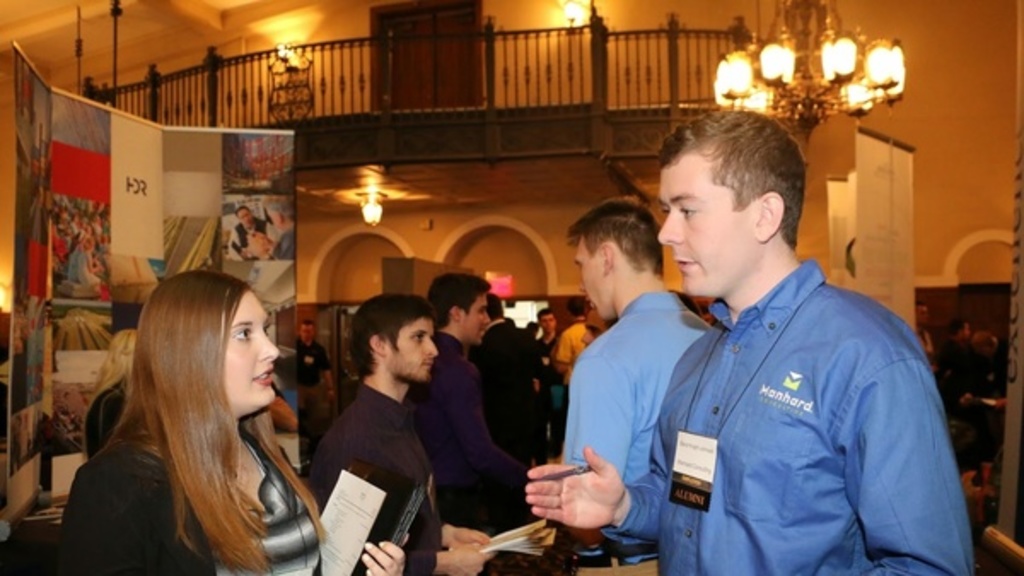
Academic Support and Tutoring
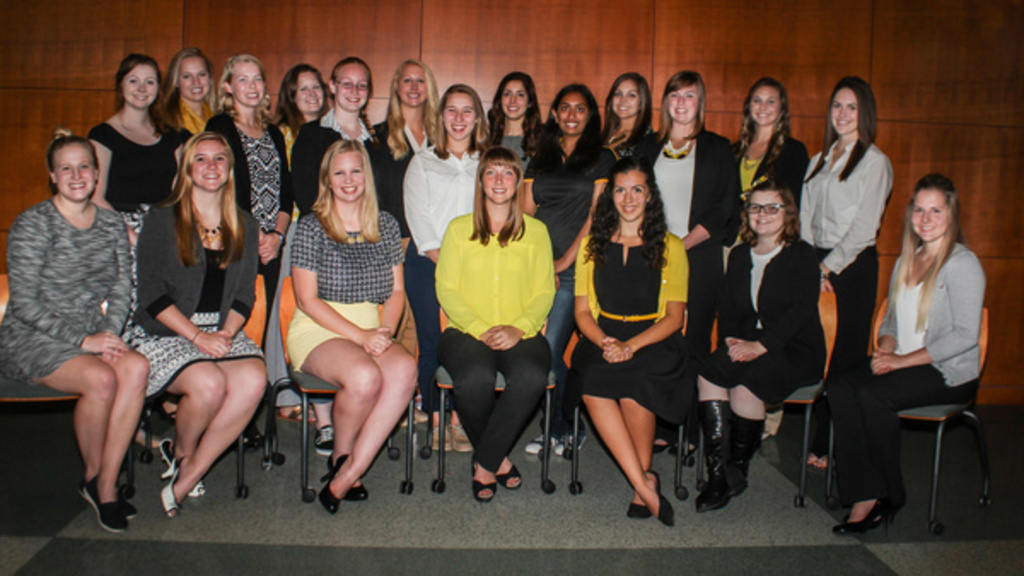
University Counseling Service

Filmscene | Common Ground
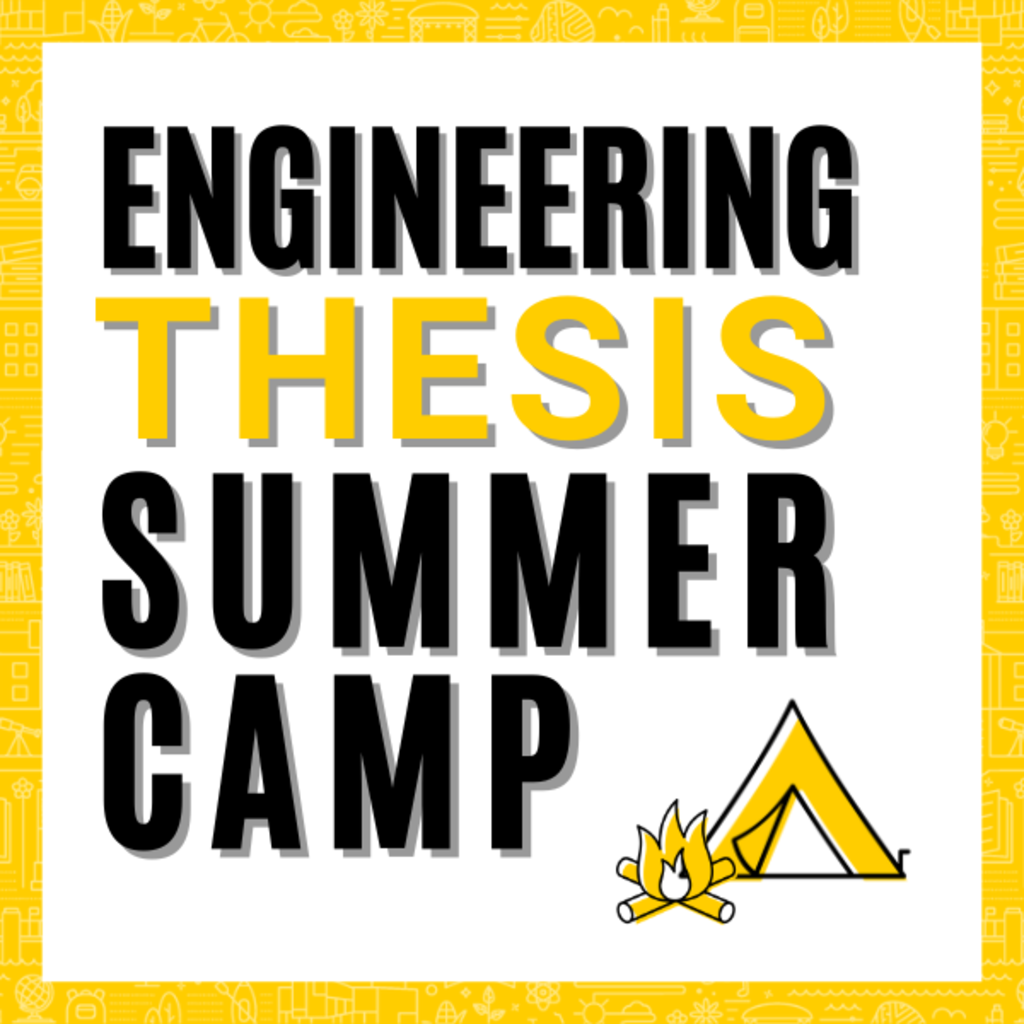
Writing Workshop (Narrative structure, Clarity, Cohesion) (Engineering Thesis Summer Camp)

Managing Anxiety/Stress/Procrastination (Engineering Thesis Summer Camp)

Questions? Talk to an Advisor
Office of Undergraduate Education
University Honors Program
- Honors Requirements
- Major and Thesis Requirements
- Courses & Experiences
- Nova Series
- Honors Courses
- NEXUS Experiences
- Non-Course Experiences
- Faculty-Directed Research and Creative Projects
- Community Engagement and Volunteering
- Internships
- Learning Abroad
- Honors Thesis Guide
- Sample Timeline
- Important Dates and Deadlines
- Requirements and Evaluation Criteria
- Supervision and Approval
- Credit and Honors Experiences
- Style and Formatting
- Submit Your Thesis
- Submit to the Digital Conservancy
- Honors Advising
- Honors Reporting Center
- Get Involved
- University Honors Student Association
- UHSA Executive Board
- Honors Multicultural Network
- Honors Mentor Program
- Honors Community & Housing
- Freshman Invitation
- Post-Freshman Admission
- Frequently Asked Questions
- Faculty Fellows
- Faculty Resources
- Honors Faculty Representatives
- Internal Honors Scholarships
- Office for National and International Scholarships
- Letters of Recommendation
- Personal Statements
- Scholarship Information
- Honors Lecture Series
- Honors Recognition Ceremony
- Make a Donation
- UHP Land Acknowledgment
- UHP Policies
Honors alumni Brandon Kasprick, policy advisor to Gov. Walz
Growing up on a family farm in northwest Minnesota influenced Brandon Kasprick’s entire life path. His time on the farm inspired his passion for public service, and his family instilled that from a young age.
“Work wasn’t about the financial motivation, it was about becoming something larger than yourself and finding a passion that brings you through day by day,” he said. “You have to love your work.”
Brandon’s dad is a farmer and his mother is a teacher. They both saw their work as a calling, whether it was feeding the world or supporting the next generation. Even the most mundane or frustrating tasks - like picking rocks out of a field - were in service of that greater calling. Brandon knew he would find his own calling and the first step was pursuing higher education.
In 2017, Brandon began attending the University of Minnesota as an Honors student majoring in political science and biology. During his first year of school, he took an Honors course on international relations that would end up influencing his entire time in school. He loved the small class size, especially as a first year student.
“We were able to dive more into the issues and have more robust conversations - not just with the other students but also with the professor,” he said.
He ended up staying in contact with that professor, John Freeman, throughout his undergraduate career. When the time came to write his thesis, he asked Dr. Freeman to be one of his advisors. Brandon’s thesis focused on how rural Minnesota residents responded to the trade war. It was a way to combine all of his interests: science, policy, and public service.
In addition to completing his Honors thesis, taking seminars, and participating in non-course experiences, Brandon took every extracurricular opportunity he could. From interning with Senator Amy Klobuchar’s reelection campaign to working as a student research assistant, each role got him closer to where he is now.
“There are a lot of opportunities at the U, but there’s still a path for you to carve your own way,” he said.
After college, Brandon moved to Washington D.C. to work for as a researcher for the U.S. Senate Committee on Armed Services, using his scientific background in the political field. He spent nearly three years in that role before another opportunity opened up - this time in Minnesota. He now works as a policy advisor for Governor Tim Walz.
“For a farm kid from northwestern Minnesota, there’s no greater honor than to serve the governor on agricultural issues,” he said.
- Summer Research Opportunities
- Global Seminars and LAC Seminars
- Honors Research in London - Summer 2024
Graduate College
Postdoc examines impact of fungal priority pathogen cryptococcus.
The World Health Organization lists Cryptococcus as a fungal priority pathogen to guide research, development, and public health action.

In extreme cases, Cryptococcus is breathed into the lungs before traveling to the spinal cord and brain, causing c ryptococcal meningitis -- an infection that is fatal if untreated.
Andrew Jezewski, a postdoctoral fellow in the Krysan Lab in the Stead Family Department of Pediatrics at the University of Iowa, studies how Cryptococcus grows in the human host. Specifically, Jezewski investigates how the fungus grows in the brain and how it tolerates carbon dioxide. Jezewski estimates that carbon dioxide levels are 100-fold higher in the human body than in the environment.
“Most strains of Cryptococcus don’t grow well in the human body,” Jezewski says. “If that strain gets in your lungs, chances are it won’t survive. It’s a stress on Cryptococcus to encounter substantial amounts of carbon dioxide. But a few strains can resist that stress from carbon dioxide. I am trying figure out how those strains can tolerate that carbon dioxide stress because those are the strains that cause severe disease.”
Cryptococcus isn’t passed from human to human and almost never causes disease in immunocompetent individuals. This alleviates concern when Jezewski and his advisor, Damian Krysan, a professor of pediatric-infectious diseases, work with Cryptococcus that has been isolated from an individual patient.
People with cryptococcal meningitis can experience seizures and may require cerebral spinal fluid drainage. They are treated intravenously with the antifungal medication amphotericin B . Jezewski says there around 200,000 cases of cryptococcal meningitis worldwide, with 150,000 resulting in death.
Since the World Health Organization lists cryptococcus as a fungal priority pathogen, resources are being increased in resource-impoverished areas, so amphotericin B can be more widely prescribed to patients. Researchers like Krysan and Jezewski are also working to identify novel therapeutic strategies.
Grant writing perfection
Jezewski received a rare perfect score on his National Institutes of Health K22 grant application, which will support his research as a faculty member.
“ I circulated that grant with a lot of people who had won K awards before and got helpful feedback,” Jezewski says. “I took all the feedback to heart to try and improve my grant. My grant received a perfect score in the first round, so I didn’t have to do a resubmission.”
Jezewski plans to take his K22 award, worth $250,000 over two years, with him to his faculty position.
“This shows, as proof of concept, I am competitive in writing grants. When I apply for positions, which are dependent on writing grants, I can at least show I have a record of that,” Jezewski says. “You can take that money to help get your research off the ground in combination with any start-up package you get. When you get offered a start-up package from an institution, (the employer) must show the NIH that the (new hire) is receiving the same level of support that they would give a faculty member who is not receiving a grant.”
Krysan believes that new faculty members doing research must learn to write and communicate their ideas effectively.
“Andrew has expansive curiosity and creativity. However, one must be able to convince others that what you are interested in and how you will study it are significant and feasible,” Krysan says. “He has written grant proposals at multiple times during his training, culminating with a perfect score on his NIH K22 application; the evolution of his writing and his ability to express his creativity and insights have been gratifying to watch and read.”
In the upcoming academic year, Jezewski will be joining the Department of Genetics and Biochemistry at Clemson University as an assistant professor affiliated with the nationally renowned Eukaryotic Pathogens Innovation Center (EPIC). His research will focus on Cryptococcus, but he also has prior experience working with other eukaryotic pathogens, including Plasmodium, the causative agent of malaria, and the brain parasite Toxoplasma.
“I am excited to bring my expertise to this new role and collaborate with a distinguished group of faculty," Jezewski says. "Together, we aim to advance our understanding of neglected and complex pathogens, ultimately working toward novel therapeutic strategies.”

IMAGES
VIDEO
COMMENTS
Separate everyone you listed into "major thanks," "big thanks," and "minor thanks" categories. "Major thanks" are given to people who your project would be impossible without. These are often predominantly professional acknowledgements, such as your advisor, chair, and committee, as well as any funders. "Big thanks" are an ...
How to write acknowledgement for master thesis. When writing an acknowledgment for your master's thesis, consider these steps: Identify Key Contributors: Start by acknowledging the individuals or entities who played a significant role in your master's thesis work. This could include your advisor, committee members, peers, family, friends, and any organizations or institutions that ...
Acknowledgements 101: The Basics. The acknowledgements section in your thesis or dissertation is where you express gratitude to those who helped bring your project to fruition. This section is typically brief (a page or less) and less formal, but it's crucial to thank the right individuals in the right order.. As a rule of thumb, you'll usually begin with academic support: your supervisors ...
As you can see in this example, the section is short and to the point, working from formal support through to personal support. If you're interested, you can explore a few more examples here. To simplify the process, we've created a free template for the acknowledgements section. If you're interested, you can download a copy here.
1 Tips on Writing Acknowledgement for Thesis. 2 Best Acknowledgement for Thesis Samples. 2.1 Acknowledgement Sample for Thesis. 2.2 Acknowledgement for Thesis Submission. 2.3 Acknowledgement for Thesis Report. 2.4 Beautiful Thesis Acknowledgement. 2.5 Acknowledging God in Thesis. 2.6 Funny Thesis Acknowledgement.
Explore expert tips for thesis acknowledgements, including essential elements and practical examples, in an academic guide. ... Acknowledge any personal encouragement or academic advice they have offered. By following these steps, you ensure that your acknowledgement resonates with sincerity and adequately reflects the importance of your ...
Example 2. I would like to thank my supervisors Dr. XXX and Dr. XXX for all their help and advice with this PhD. I would also like to thank my sisters, whom without this would have not been possible. I also appreciate all the support I received from the rest of my family. Lastly, I would like to thank the XXX for the studentship that allowed me ...
PhD thesis acknowledgements, on the other hand, tend to be longer, given the extended duration of PhD research. The average length for a PhD thesis acknowledgement ranges from 250 to 1000 words, or approximately half a page to 2 pages. In short: Bachelor's theses: usually 100-250 words. Master's theses: usually 100-350 words.
This template provides a basic structure for the acknowledgements section of a typical dissertation, thesis or research project. In line with academic best practice, the acknowledgements are structured from most formal (supervisor, committee, etc.) to least formal (family and friends). Each section has easy to use placeholders that allow you to create your acknowledgements section in just a ...
10. "The completion of this thesis or dissertation is the culmination of efforts from various individuals whom I would like to express my sincere appreciation.". 11. "This thesis acknowledgement section is an opportunity to give thanks to those who made this journey less daunting.". 12.
This dissertation acknowledgment is a tribute to the combined efforts that made this academic endeavor possible. Acknowledgement Sample for Dissertation This acknowledgment is a sincere expression of gratitude to my advisor, mentors, and peers who contributed significantly to the completion of this dissertation.
Example 2: Acknowledgement. I am grateful to many people who helped me during the process of completing my thesis. First and foremost, I would like to thank my advisor, who has been instrumental in guiding me through this process. I would also like to thank my committee members for their helpful feedback and support.
Here are some good examples to help you get started: Example 1. I couldn't have reached this goal without the help of many people in my life. I'd like to take this opportunity to thank them for their support. First, my sincere thanks to my dissertation committee. The value of their guidance cannot be overstated. Dr.
My labmate's thesis, who wrote the acknowledgements in a different style to the rest by using bullet points. Dr Wei's thesis, acknowledgements on page 6. Direct download here. Shortest acknowledgements section of the list at 122 words. Dr Manca's thesis, acknowledgements on page 5. Direct download here.
help you write your Acknowledgements section of your dissertation. According to one source, the Acknowledgements section of a Ph.D. dissertation is the most widely read section. Whether you believe this or not, many individuals who helped you in the ... valuable advice / invaluable contribution / suggestions / experience invaluable insight into ...
6. Use the same font size and type as the rest of your thesis. Although your acknowledgements will likely be written in a more casual tone with more familiar language, they are still part of your thesis and should thus be written in the same font size and type as the rest of your work.
Thesis Acknowledgement Samples - Sample 17. My first and big appreciation goes to my first supervisor, Prof Habin Lee, for his marvelous supervision, guidance and encouragement. Sincere gratitude is extended to his generous participation in guiding, constructive feedback, kind support, and advice during my PhD.
Thesis Acknowledgement. Foremost, I would like to express my sincere gratitude to my advisor Prof. Ying Wu for the continuous support of my Ph.D study and research, for his patience, motivation, enthusiasm, and immense knowledge. His guidance helped me in all the time of research and writing of this thesis.
Acknowledgements I would like to express deepest gratitude to my advisor Dr Hobeika for his expert guidance, and encouragement throughout my study and research. Without his incredible patience, wisdom and helpful suggestions, my thesis work would have been a frustrating and overwhelming pursuit. In addition, I express my appreciation to Dr
PhD Dissertation Acknowledgement (Long Sample) I extend my sincere gratitude to my esteemed advisor, Prof. _______, whose unwavering support, patience, motivation, and profound knowledge have been instrumental throughout my Ph.D. study and related research. His guidance has been a beacon, shaping my research endeavors and enriching the writing ...
ACKNOWLEDGEMENTS . I would like to express my special appreciation and thanks to my advisor Professor Dr. Reg A. Williams, you have been a tremendous mentor for me. I would like to thank you for encouraging my research and for allowing me to grow as a research scientist. Your advice on both research as well as on my career have been invaluable.
The acknowledgements section should appear between your title page and your introduction in your research paper. How long is an acknowledgement in a research paper? The acknowledgement section (usualy inserted as a page) of your research paper should consist of 3-5 paragraphs or no more than 300 words you put on a page after the title page.
An approved thesis format for students in the Center for Advanced Dental Education (CADE) incorporates a one-journal article format and a literature review. Each section of the thesis has its own list of references (Literature Cited or Bibliography). The same method of citing (note numbering or author [date]) should be used in both sections. If
secondary thesis advisor may be a faculty member from another department but will generally be a specialist from the applied field relevant to the student's thesis and/or the secondary advisor will provide the study dataset. The formal thesis advisors must be declared at the same time as the topic proposal, through submission to Canvas.
Tuesday, June 11, 2024 12:00pm to 1:00pm. This workshop is designed to help students learn to better manage their anxiety, stress, and procrastination by utilizing a variety of tools and strategies that they can implement in their daily lives. Presented by Heidi Schmitt, University Counseling Service. Part of the Engineering Thesis Summer Camp.
He now works as a policy advisor for Governor Tim Walz. "For a farm kid from northwestern Minnesota, there's no greater honor than to serve the governor on agricultural issues," he said. Growing up on a family farm in northwest Minnesota influenced Brandon Kasprick's entire life path. His time on the farm inspired his passion for public ...
Written by. John Riehl. The World Health Organization lists Cryptococcus as a fungal priority pathogen to guide research, development, and public health action. In extreme cases, Cryptococcus is breathed into the lungs before traveling to the spinal cord and brain, causing c ryptococcal meningitis -- an infection that is fatal if untreated.